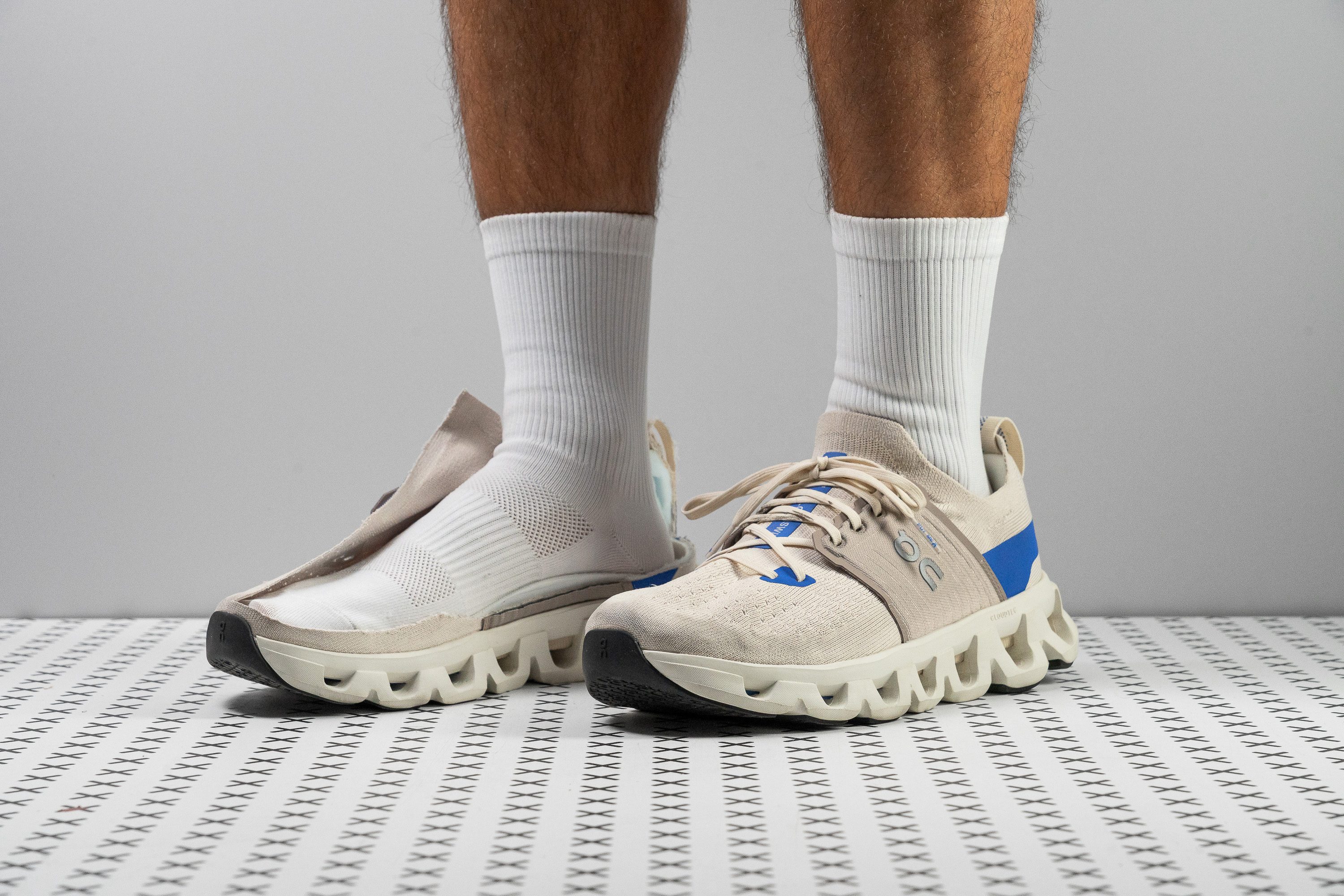Our verdict
- Top pick in best On running shoes
- Top pick in best On road running shoes
Pros
- Outstanding knit upper
- Improved traction
- Premium build quality
- Remarkable stable heel
- Versatile for everyday use
- Well-integrated reflective elements
- Plush heel padding
- Built with heel strikers in mind
Cons
- Extremely firm ride
- Tight toebox
- Performance falls short
- Pricey!
Audience verdict
- Top 25% most popular running shoes
Comparison
The most similar running shoes compared
+ + Add a shoe | |||||
|---|---|---|---|---|---|
| Audience score | 83 Good! | 77 Decent! | 88 Great! | 84 Good! | |
| Price | £150 | £65 | £140 | £70 | |
| Pace | Daily running | Daily running | Daily running | Daily running | |
| Shock absorption | Moderate | Moderate | Moderate | Moderate | |
| Energy return | Moderate | Low | Moderate | Low | |
| Traction | High | Moderate | High | Moderate | |
| Arch support | Neutral | Neutral | Neutral | Neutral | |
| Weight lab Weight brand | 10.3 oz / 291g 9.8 oz / 278g | 9.3 oz / 265g 9.4 oz / 267g | 9.7 oz / 275g 9.8 oz / 277g | 10.4 oz / 295g 11.4 oz / 323g | |
| Drop lab Drop brand | 10.4 mm 8.0 mm | 10.1 mm 10.0 mm | 8.5 mm 10.0 mm | 9.5 mm 10.0 mm | |
| Strike pattern | Heel | Heel | HeelMid/forefoot | HeelMid/forefoot | |
| Size | True to size | Slightly small | True to size | True to size | |
| Midsole softness | Firm | Balanced | Balanced | Balanced | |
| Difference in midsole softness in cold | Small | Small | Small | Normal | |
| Toebox durability | Decent | Decent | Decent | Good | |
| Heel padding durability | Good | Good | Decent | Good | |
| Outsole durability | Good | Good | Decent | Decent | |
| Breathability | Moderate | Moderate | Moderate | Moderate | |
| Width / fit | Medium | Medium | Medium | Medium | |
| Toebox width | Narrow | Medium | Medium | Medium | |
| Stiffness | Moderate | Moderate | Stiff | Moderate | |
| Torsional rigidity | Moderate | Moderate | Moderate | Moderate | |
| Heel counter stiffness | Flexible | Moderate | Stiff | Moderate | |
| Rocker | ✓ | ✗ | ✗ | ✗ | |
| Heel lab Heel brand | 32.7 mm 31.0 mm | 32.2 mm 32.0 mm | 33.6 mm 39.0 mm | 34.3 mm 35.0 mm | |
| Forefoot lab Forefoot brand | 22.3 mm 23.0 mm | 22.1 mm 22.0 mm | 25.1 mm 29.0 mm | 24.8 mm 25.0 mm | |
| Widths available | Normal | NarrowNormalWideX-Wide | NormalWide | Normal | |
| Orthotic friendly | ✓ | ✓ | ✓ | ✓ | |
| Season | All seasons | All seasons | All seasons | All seasons | |
| Removable insole | ✓ | ✓ | ✓ | ✓ | |
| Ranking | #262 Bottom 31% | #351 Bottom 8% | #136 Top 36% | #256 Bottom 33% | |
| Popularity | #92 Top 25% | #57 Top 15% | #54 Top 15% | #238 Bottom 37% |
Who should buy
The On Cloudswift 4 is a solid choice if you:
- Are a heel striker looking for a shoe with a moderate stack height and willing to pay a little extra for a premium-quality upper.
- Want a shoe for daily wear that can also handle light weekend runs.
- Enjoyed the Cloudswift 3, as this update keeps the same feel with subtle refinements from heel to toe for a smoother experience.
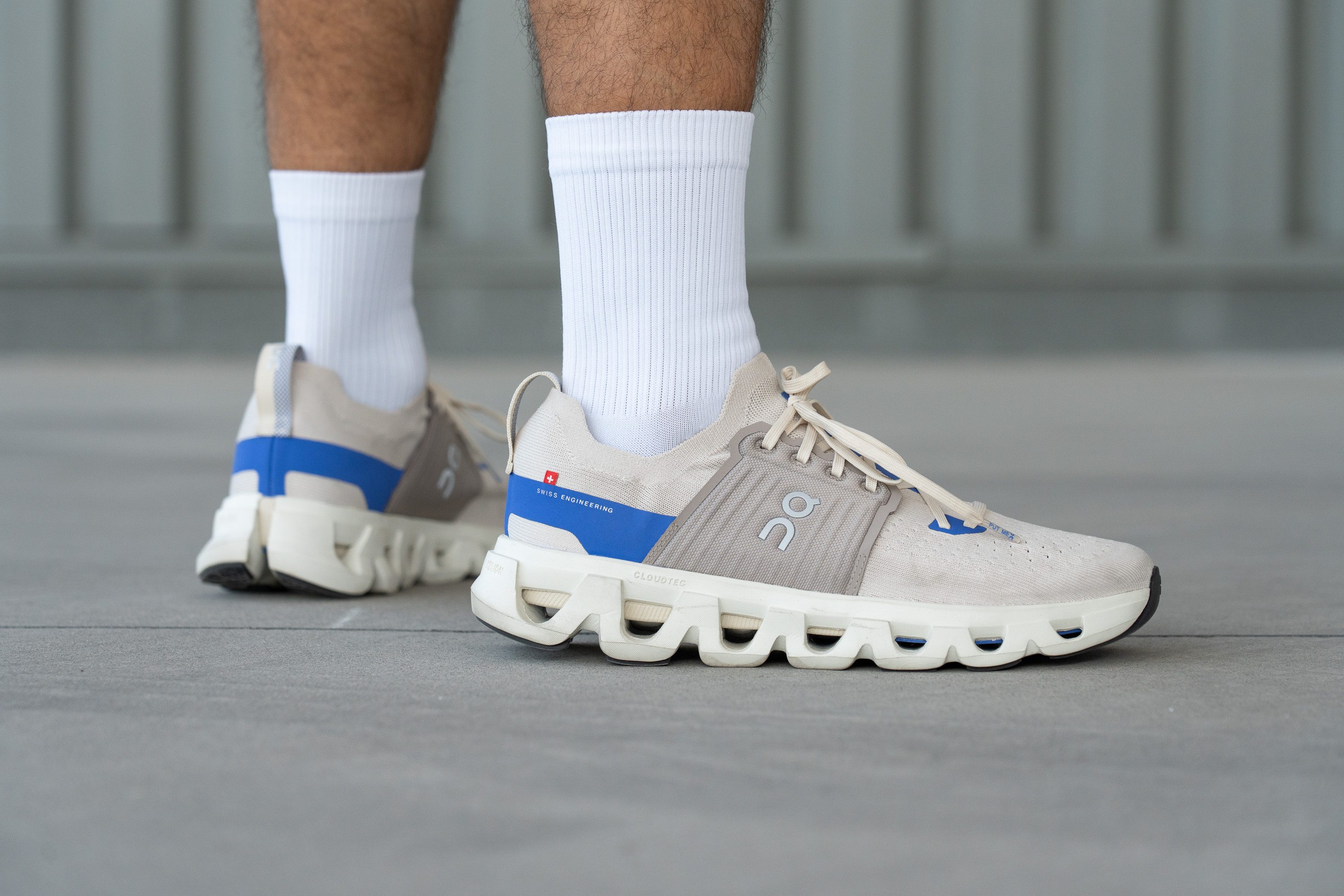
Who should NOT buy
We think the biggest problem with the Cloudswift 4 is its high price paired with low energy return. In our lab tests, we found that cheaper shoes like the Adidas Supernova Rise 2 or New Balance FuelCell Rebel v5 deliver a springier, more responsive ride. From our perspective, that makes the Cloudswift 4 a poor value choice for serious runners.
We also believe that cushioning falls short, especially for forefoot strikers. In our experience, shoes like the ASICS Novablast 5 or Adidas Adizero EVO SL are much better options. Both offer max-stack comfort, stronger energy return... and lower prices too!
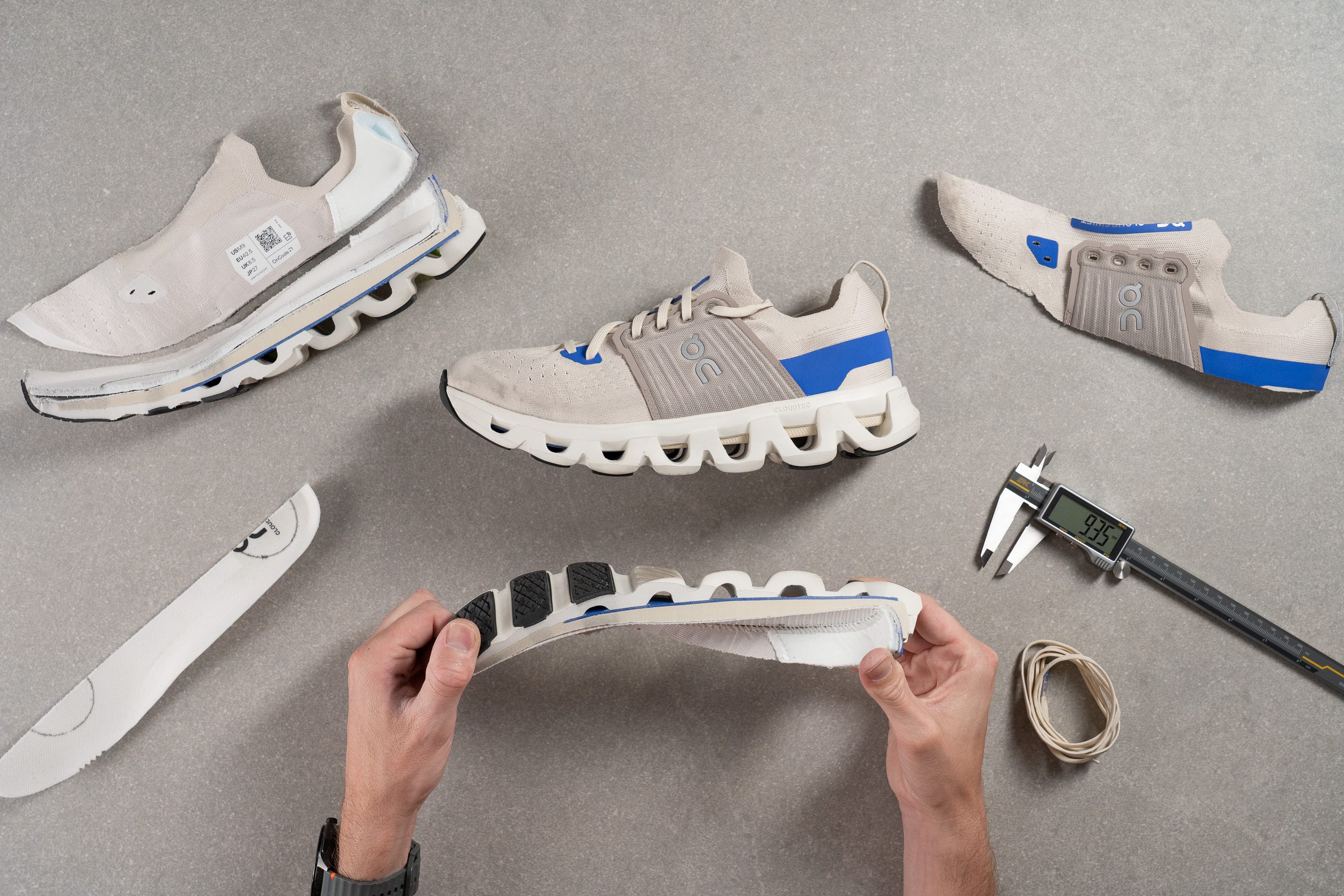
Cushioning
Shock absorption
If you’re after maximum shock absorption, this isn’t the shoe for you because it falls short of true max cushioning. Using the ASTM F1976 testing method, we measured 128 SA in the heel and only 78 SA in the forefoot.
That forefoot result really caught our attention, as it’s exceptionally low. Still, we’ll gain more clarity on this unusual outcome once we complete our full set of lab tests.
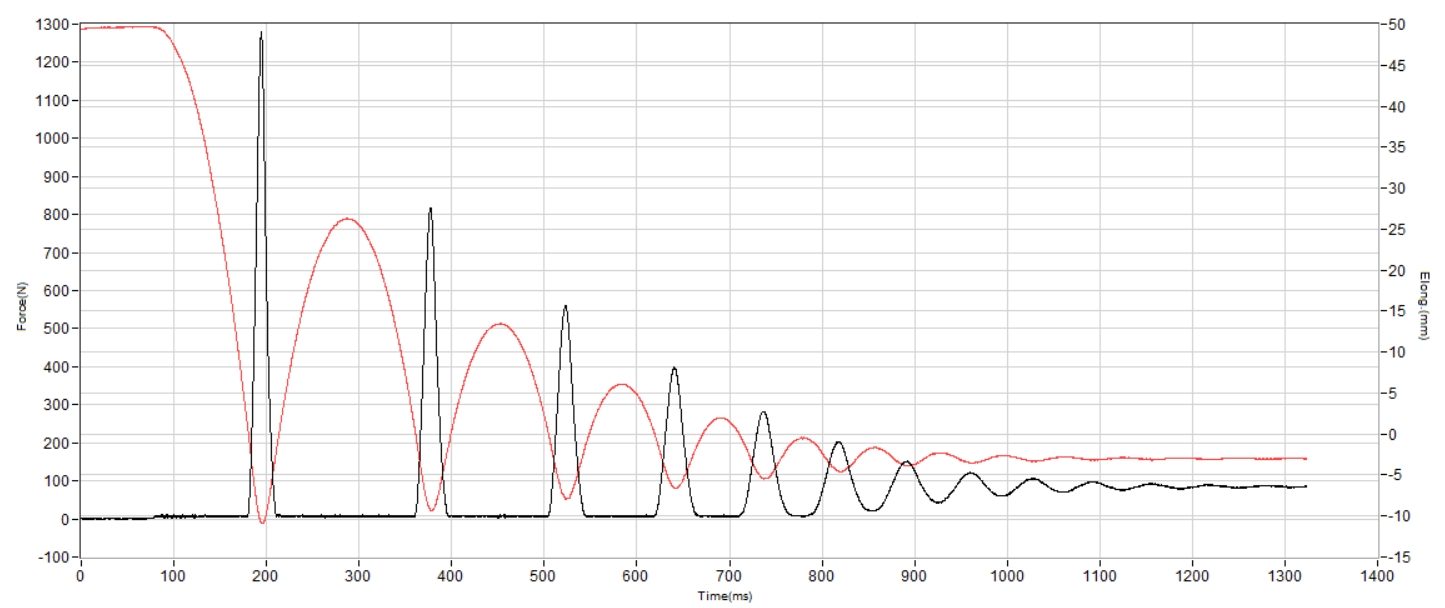
| Cloudswift 4 | 128 SA |
| Average | 130 SA |
Energy return
The Cloudswift 4 delivers only 57.6% energy return, a figure that clearly falls short of expectations. From our perspective, On needs to move beyond the EVA-based Helion and introduce a more capable training foam to justify its premium cost.
It's true that this energy return could be acceptable in a standard daily trainer. However, the real concern is pricing. Sitting well above many competitors, it makes the shoe a poor value for runners who prioritise performance per dollar.
| Cloudswift 4 | 57.6% |
| Average | 58.6% |
Heel stack
One thing that clearly explains our shock absorption results is the stack height of the Cloudswift 4. On chose to keep the design classic rather than going maximalist, and we actually appreciate that decision.
For those who want extra-cushioned rides, the On Cloudmonster 2 covers that need, while the Cloudswift 4 stays closer to a classic daily trainer feel with just 32.7 mm in the heel.
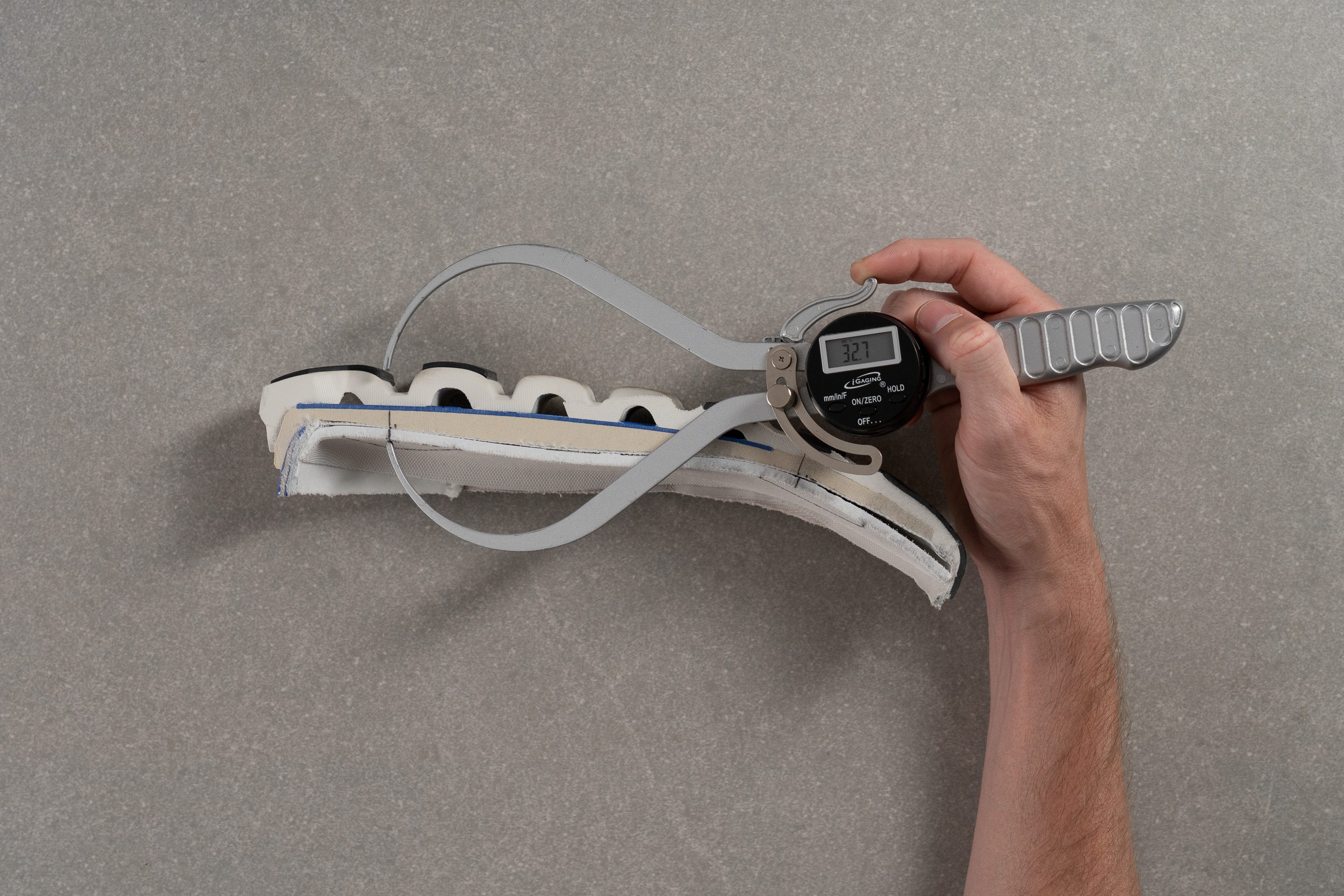
| Cloudswift 4 | 32.7 mm |
| Average | 34.8 mm |
Forefoot stack
The forefoot also mirrors this design philosophy with just 22.3 mm of stack. It’s actually unusual for us to review a shoe in 2025 with a forefoot height sitting this close to 20 mm.
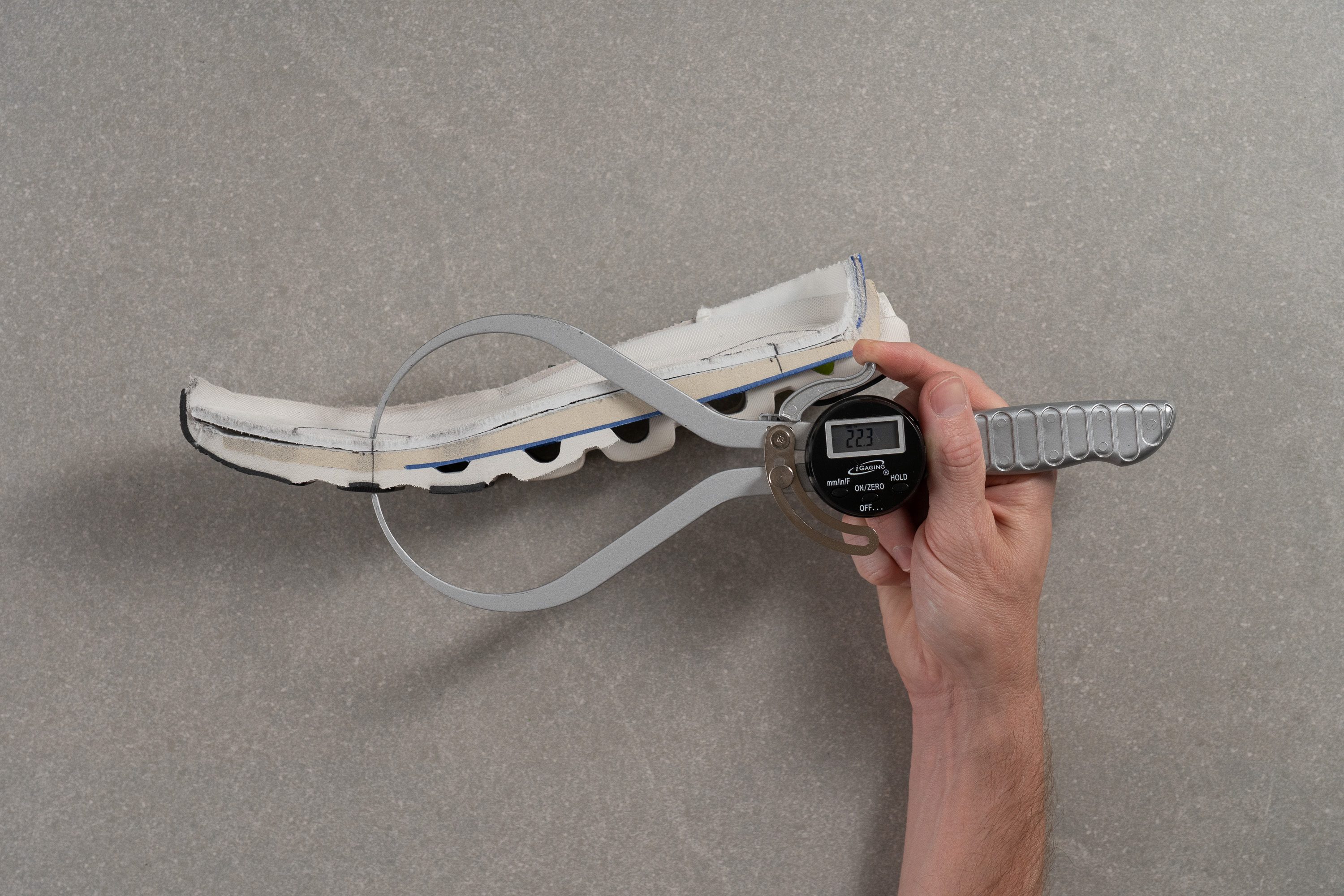
| Cloudswift 4 | 22.3 mm |
| Average | 26.2 mm |
Drop
The drop further confirms its classic build. At 10 mm, the steep offset naturally supports heel strikers, offering them a smoother landing, while the forefoot feels too thin to deliver adequate cushioning for many runners.
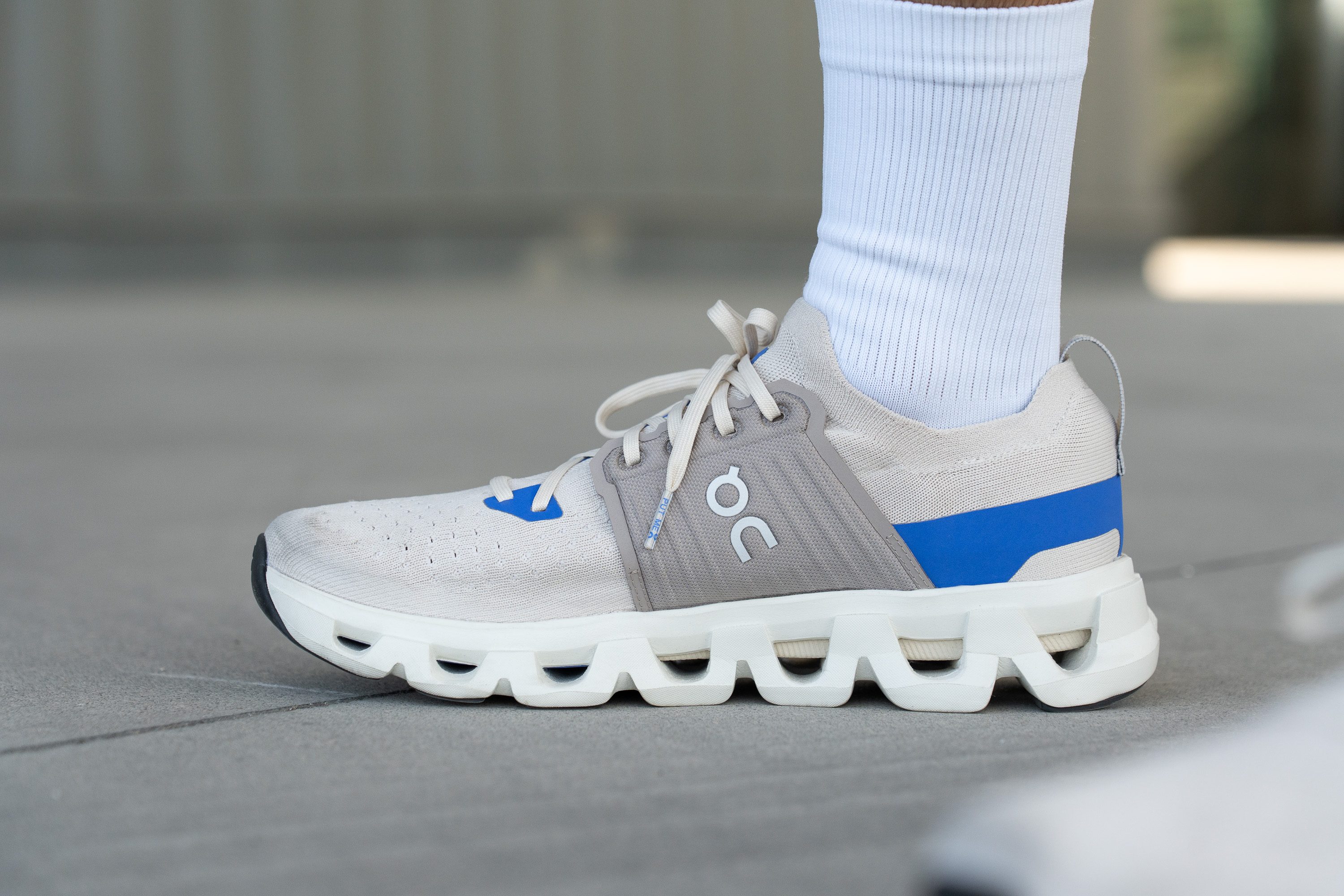
| Cloudswift 4 | 10.4 mm |
| Average | 8.6 mm |
Midsole softness
NewThe EVA-based Helion midsole feels firm as stone, and to enjoy the Cloudswift 4 you really need to appreciate that sensation underfoot.
We tested the main layer of foam at a whooping 51.3 AC on our durometer, which is an almost record-breaking value. The CloudTec system softens things slightly by compressing on every step, yet the ride remains far from a cloud-like experience, which adds a touch of irony given the shoe’s name.
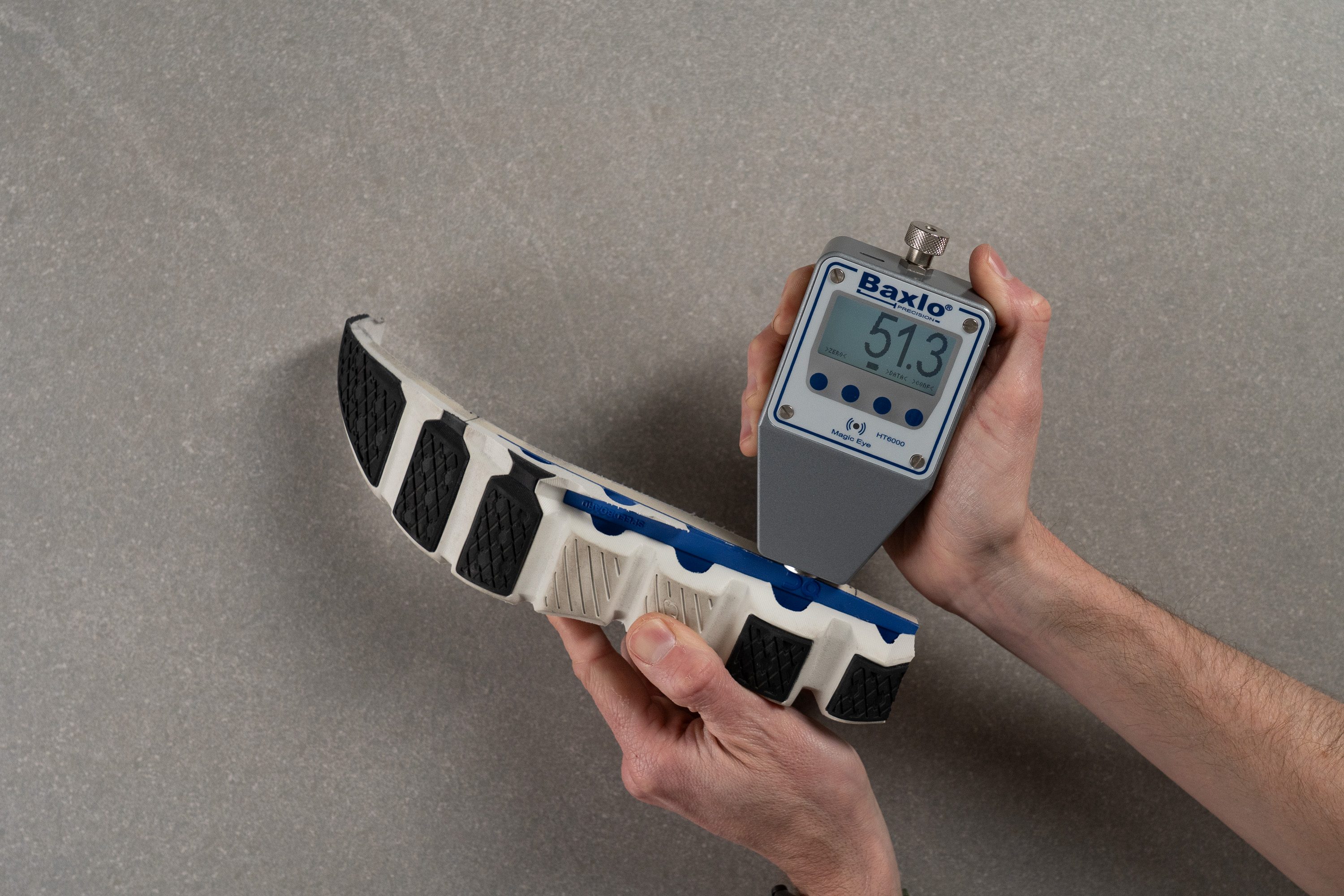
| Cloudswift 4 | 51.3 AC |
| Average | 36.2 AC |
Secondary foam softness
NewThe Cloudswift 4 includes a secondary layer in its dual-foam setup. This layer is the one that hits the ground first and measures 32.1 AC, making it notably softer than the main foam, though the shoe as a whole still feels fairly firm by today’s standards.
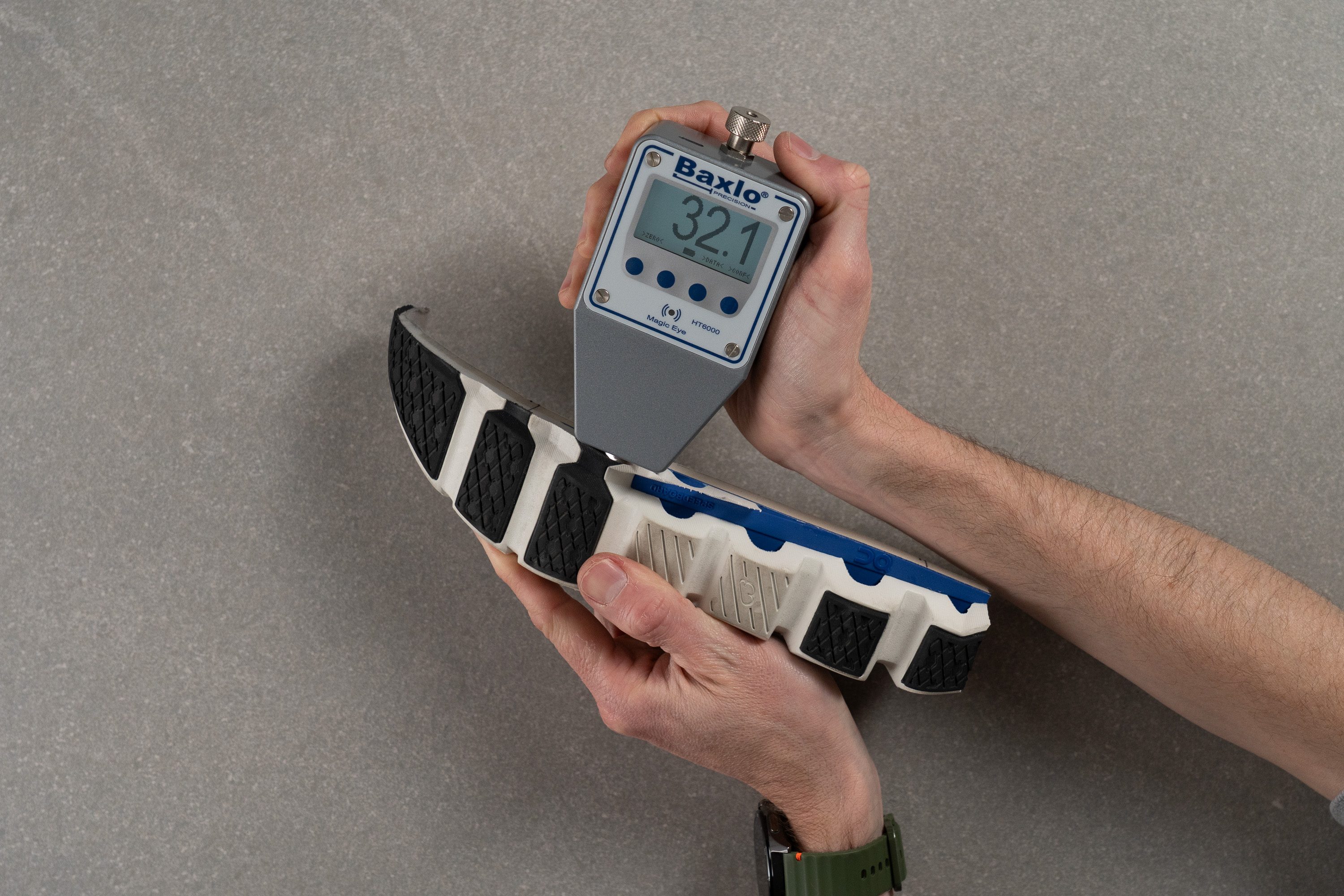
| Cloudswift 4 | 32.1 AC |
| Average | 38.9 AC |
Rocker
The rocker in this shoe starts with a huge heel bevel, which immediately eases the transition for heel strikers. Instead of landing on a flat block of foam, this geometry reduces impact and helps the foot roll forward more smoothly during initial contact with the ground.
We found the heel rocker particularly effective in complementing the shoe’s firm midsole. By curving the heel section, On avoids a harsh, brick-like sensation at touchdown.
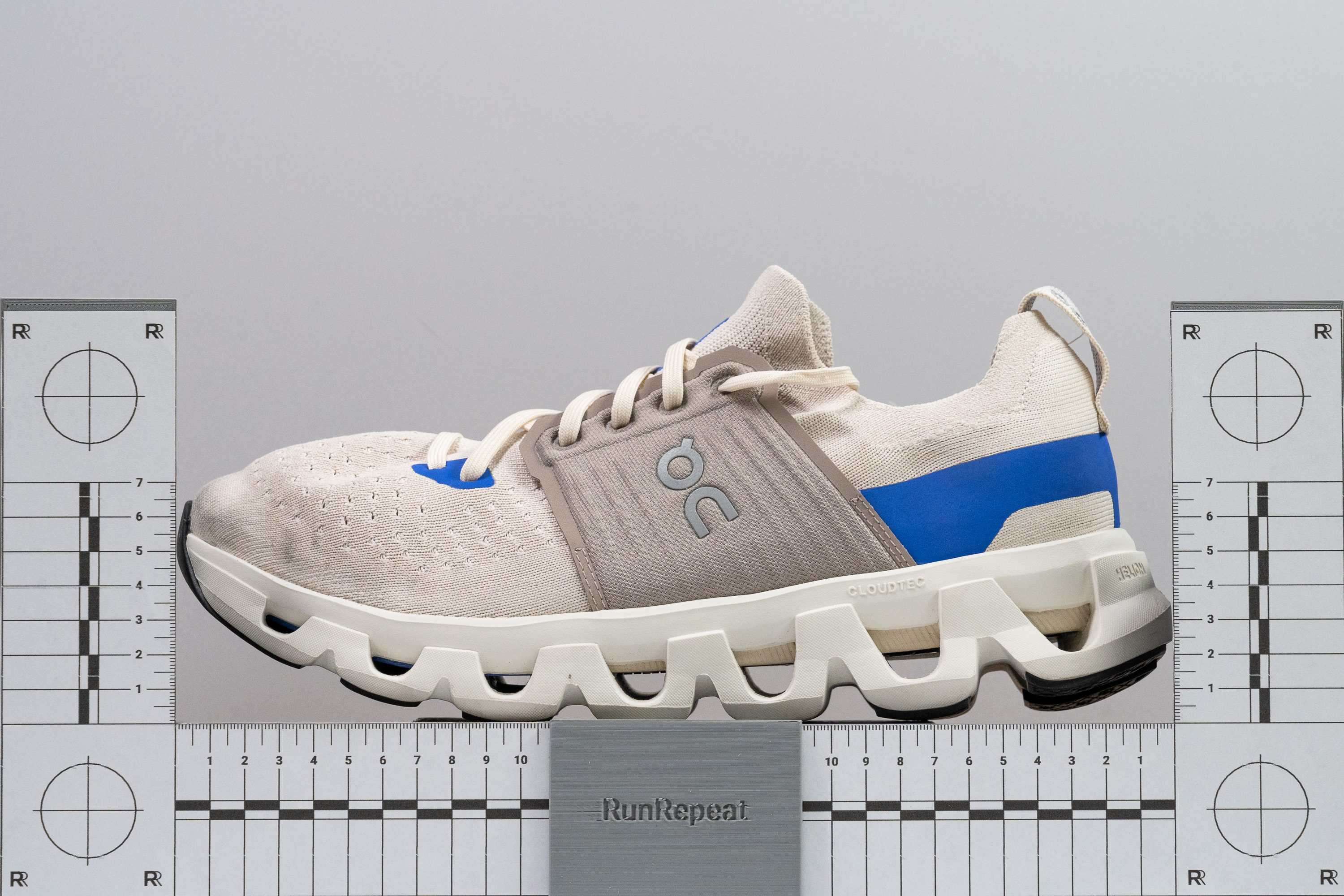
Plate
The blue nylon-based Speedboard plate is still present, but we discovered a key change—it now runs only three-quarters of the shoe instead of heel to toe, something not mentioned by On.
Visible only in our cut-in-half photo, this new plate makes the ride more stable for heel/midfoot strikers, but it's another sign that On doesn't care very much about forefoot strikers with the Cloudswift 4.
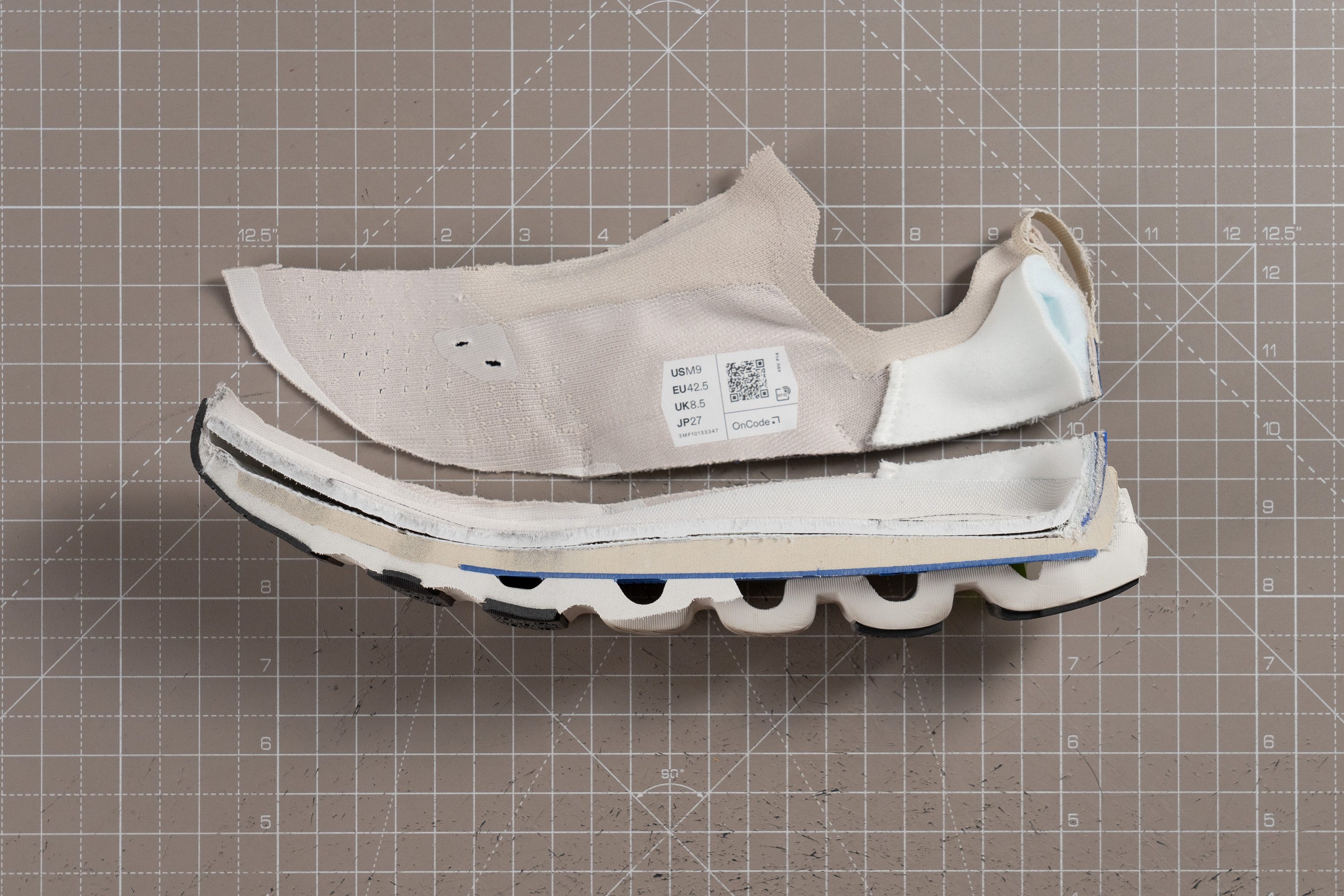
Size and fit
Size
On Cloudswift 4 fits true to size (28 votes).
Width / Fit
To study the fit of the Cloudswift 4, we tested it with a precise 1:1 gel mould of the shoe.
We discovered a width of 93.8 mm at the widest point, creating a slightly narrower fit compared to its predecessor. But let's keep doing measurements...
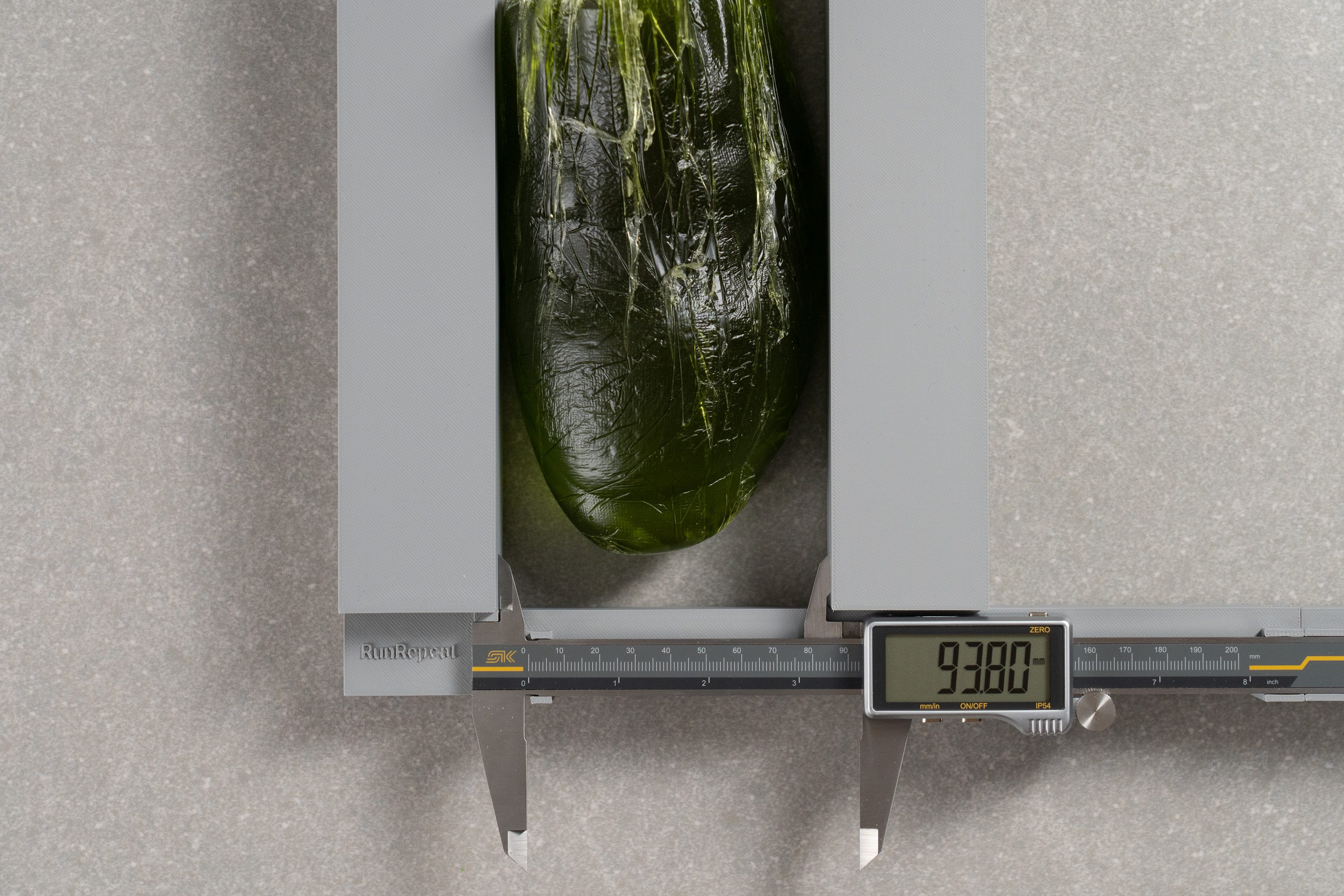
| Cloudswift 4 | 93.8 mm |
| Average | 95.1 mm |
Toebox width
While the first measurement was fairly normal, this one stood out. At 68.9 mm, the toebox is clearly on the tighter side, though the knit upper helps offset it since it’s far more flexible than mesh.
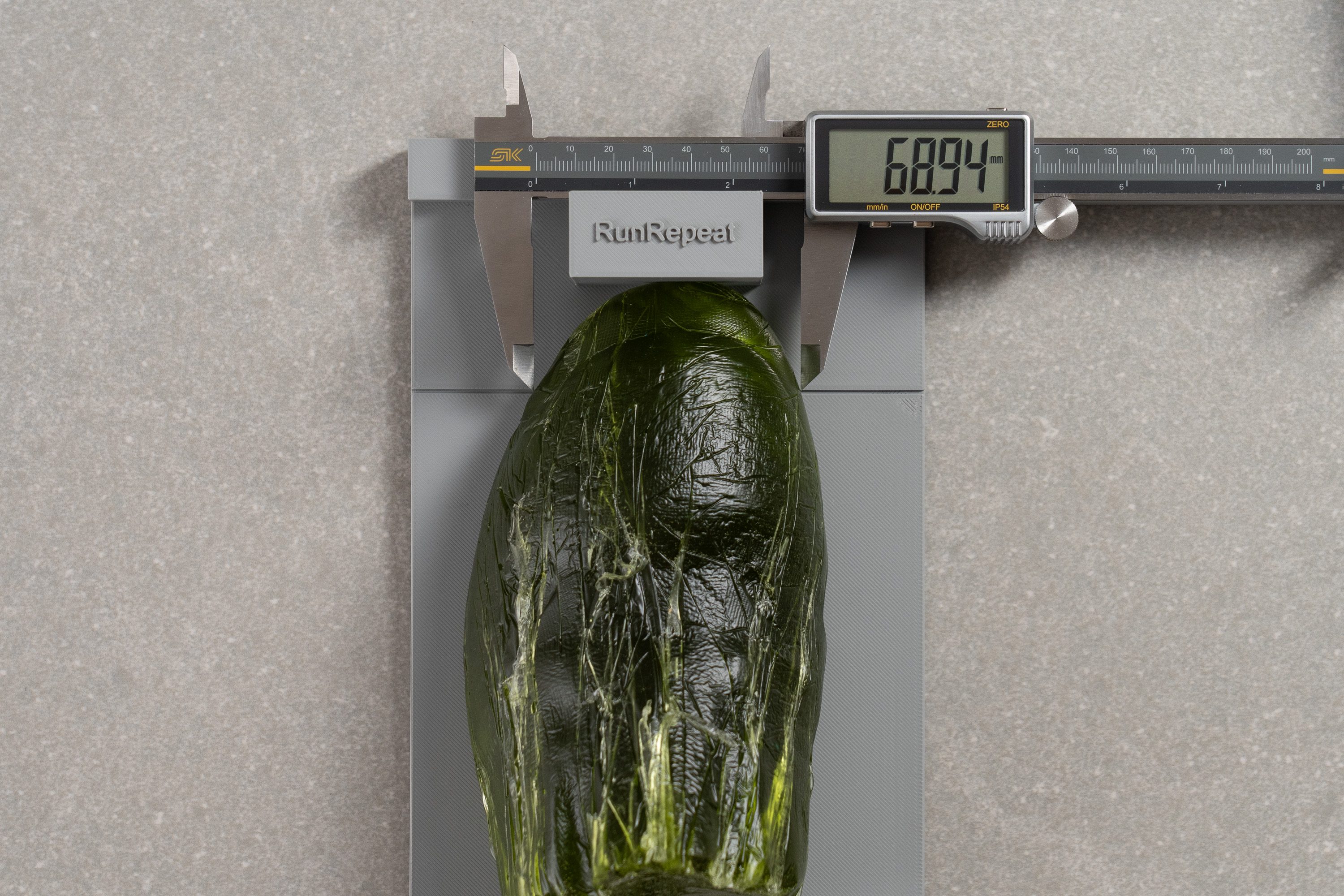
| Cloudswift 4 | 68.9 mm |
| Average | 73.3 mm |
Toebox height
What On reduced in width, they clearly compensated for in height.
We measured an impressive 33.5 mm of vertical clearance, and combined with the soft knit upper, it allows very comfortable upward toe movement.
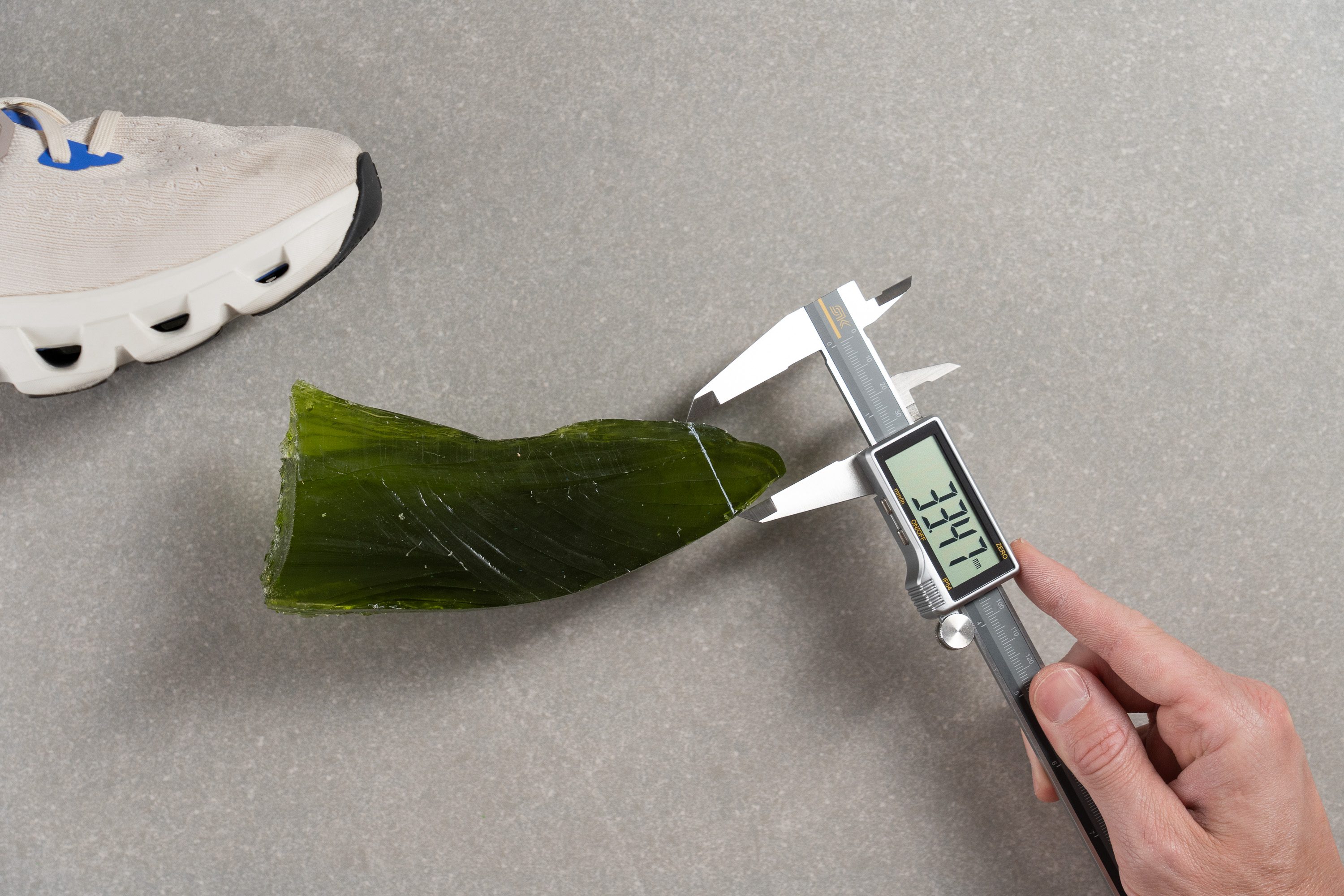
| Cloudswift 4 | 33.5 mm |
| Average | 27.0 mm |
Traction / Grip
Traction test
One of the things that made us cringe with the Cloudswift 3 was its extremely poor grip, as we tested and discovered a score of just 0.25 in this same evaluation.
However, we're happy to confirm that On fixed this issue in version 4. It now scored a fantastic 0.52, giving us a nice result that feels far more reliable.
| Cloudswift 4 | 0.52 |
| Average | 0.49 |
Outsole design
The outsole of the Cloudswift 4 features a classic design from many other On shoes, combining segmented rubber pods and exposed EVA foam, arranged in distinct rectangular sections. We found that back rubber overlays on the heel and forefoot in the most wear-prone areas, while central areas reveal the lighter EVA midsole for reduced weight and added flexibility.
You can also observe that a huge vertical cutout runs through the centre, exposing the blue Speedboard plate and separating the outsole into independent blocks.
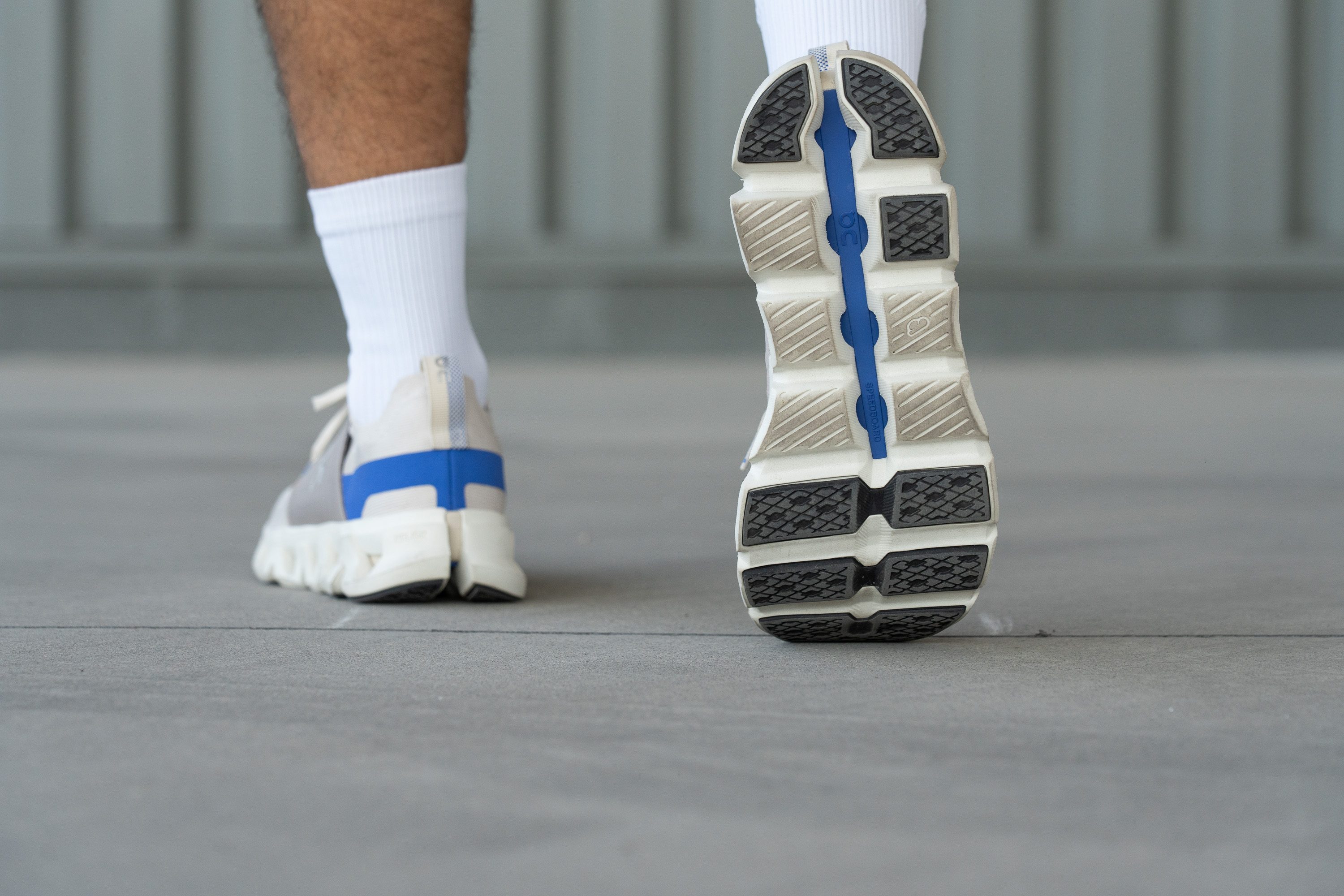
Flexibility / Stiffness
What On managed very well with this shoe is keeping it impressively flexible even with a firm foam and a plastic plate. It scored just 10.7N in our test, making it comfortable for daily wear like errands or casual walks.
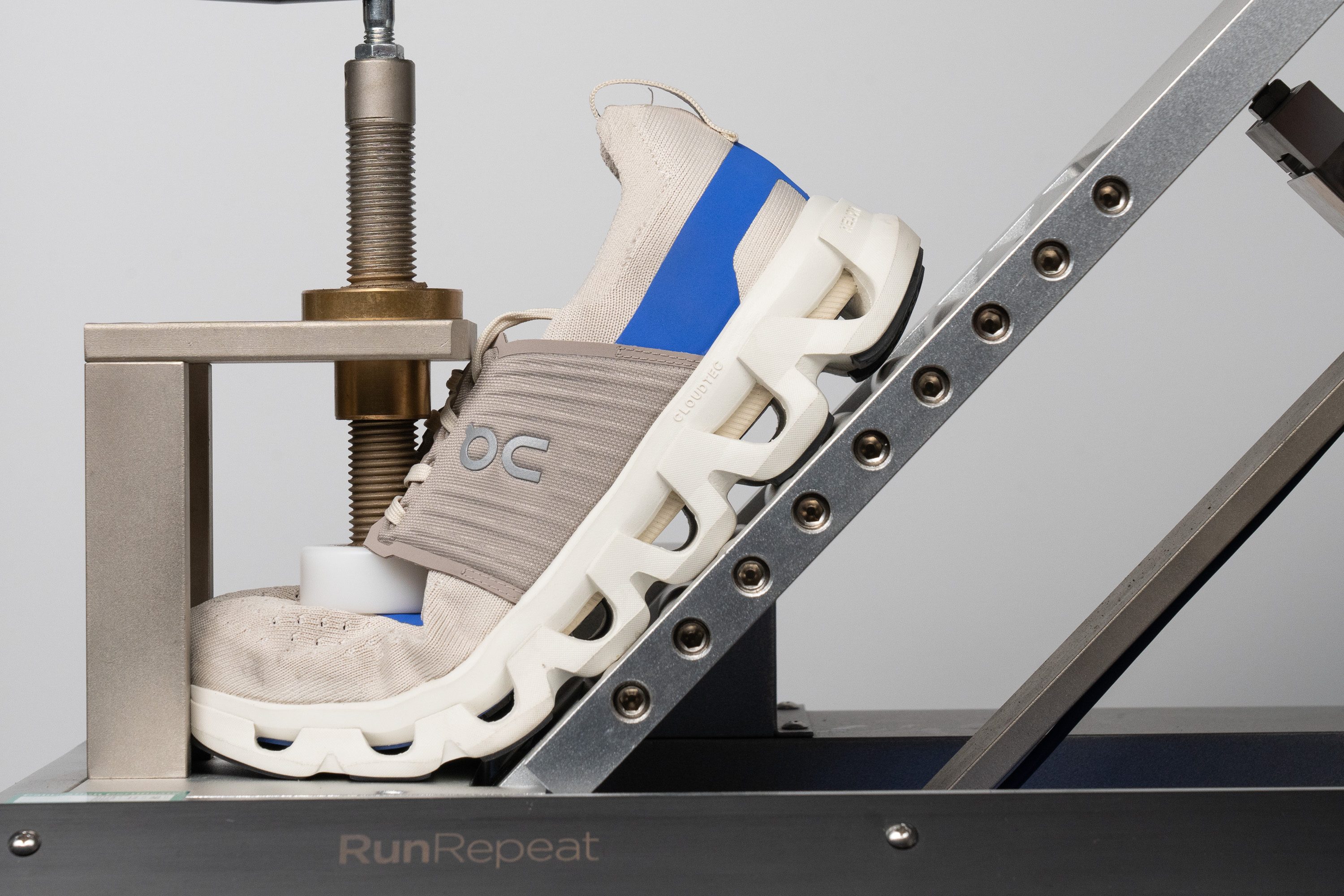
| Cloudswift 4 | 10.7N |
| Average | 15.3N |
Weight
Another upgrade from the Cloudswift 3 is weight. Version 4 dropped slightly to 10.3 oz or 291g. While that’s a welcome change, we still feel On should push further in reducing weight, as the shoe remains heavy.
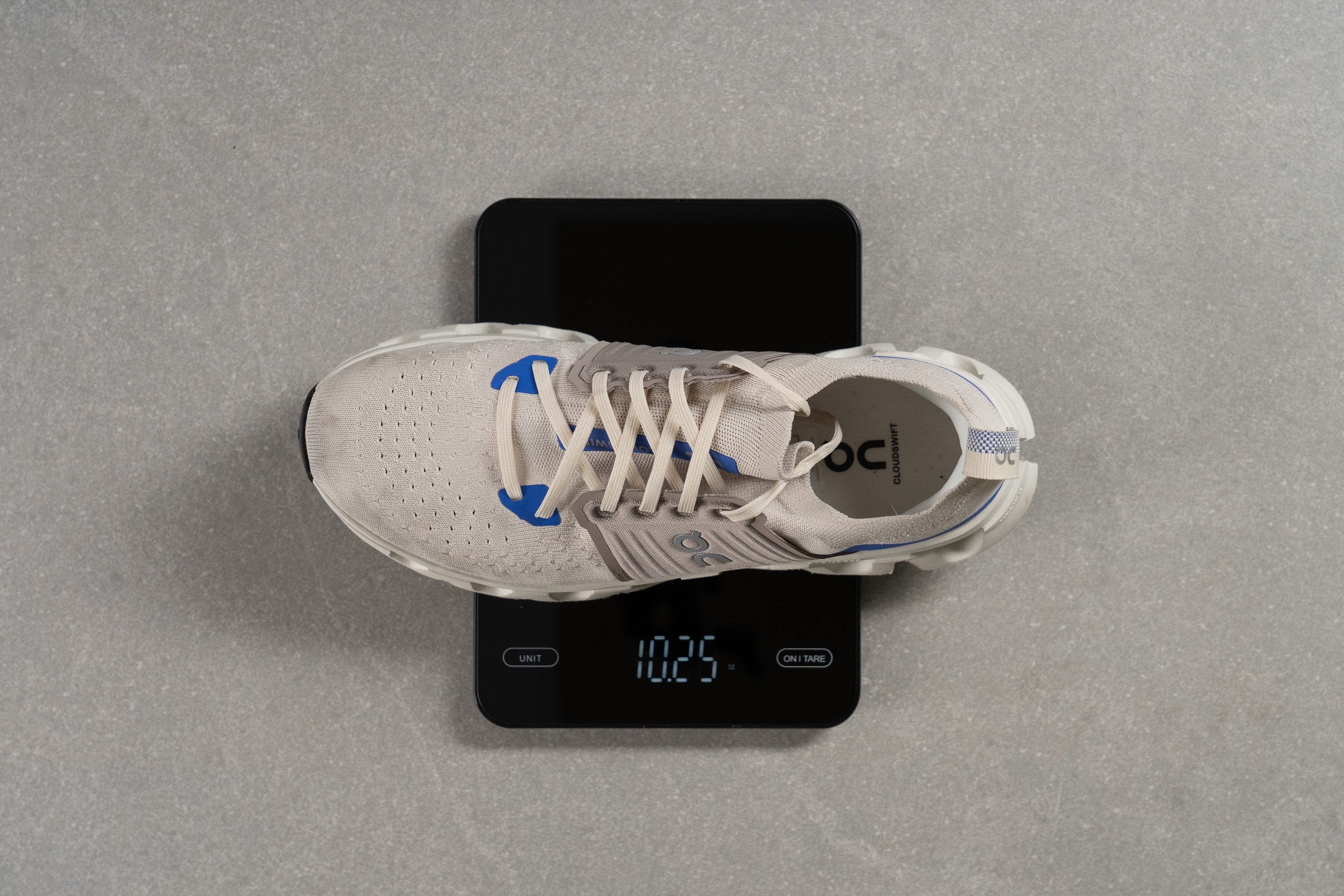
| Cloudswift 4 | 10.3 oz (291g) |
| Average | 9.3 oz (264g) |
Breathability
The usual concern with knit-based uppers is that breathability often suffers, making shoes too hot for summer runs, but we tested the Cloudswift 4 in the lab to see how it performs.
After running our smoke test, we were pleased with the outcome. Scoring 4 out of 5 is not easy for a knit-based upper.
On achieved this by adding ventilation holes strategically in the toebox, allowing hot air to escape efficiently and keeping the interior cooler.
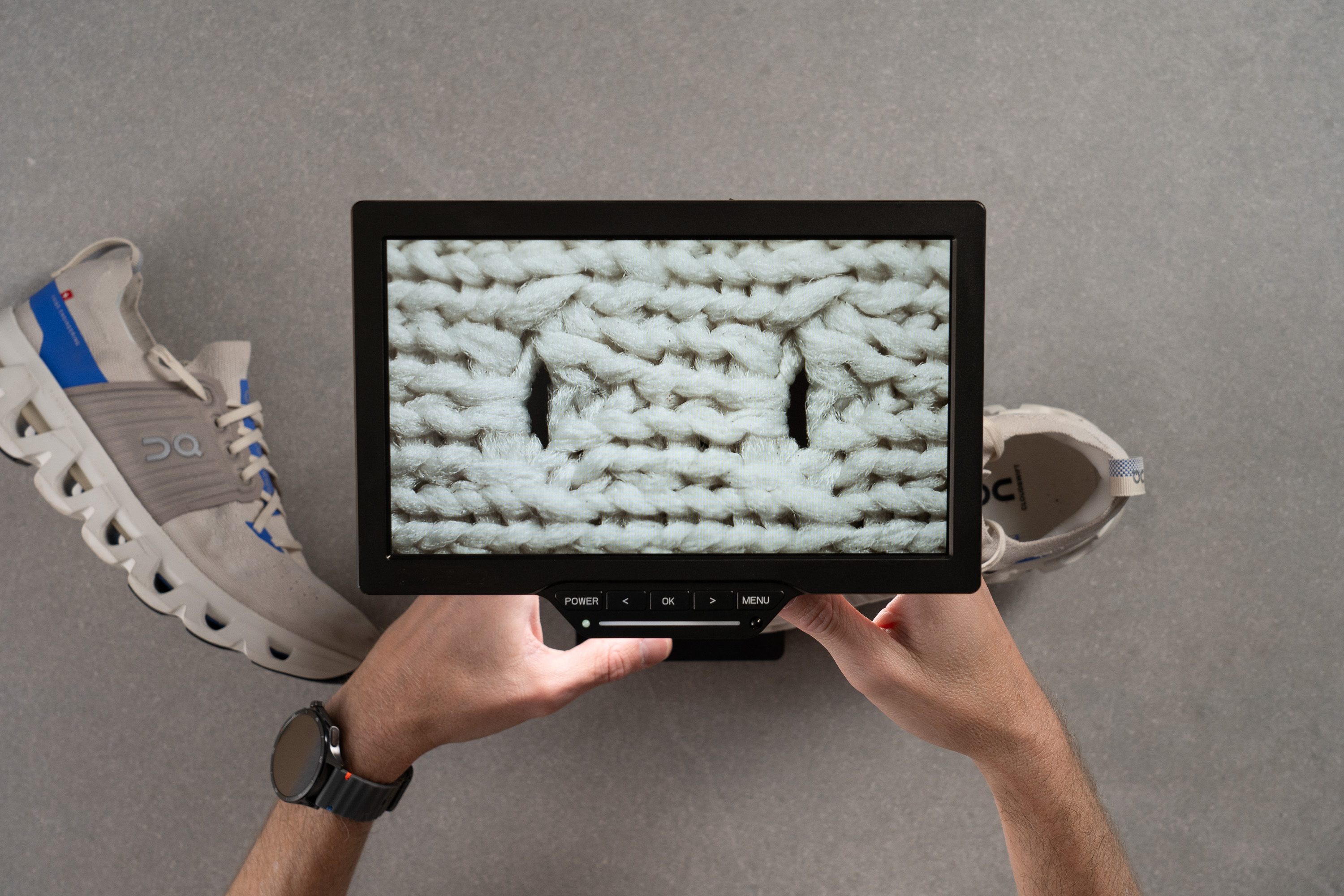
We inspected those holes closely with our digital microscope, and this is one of those details you truly pay extra for with On. The build quality of the upper is phenomenal.
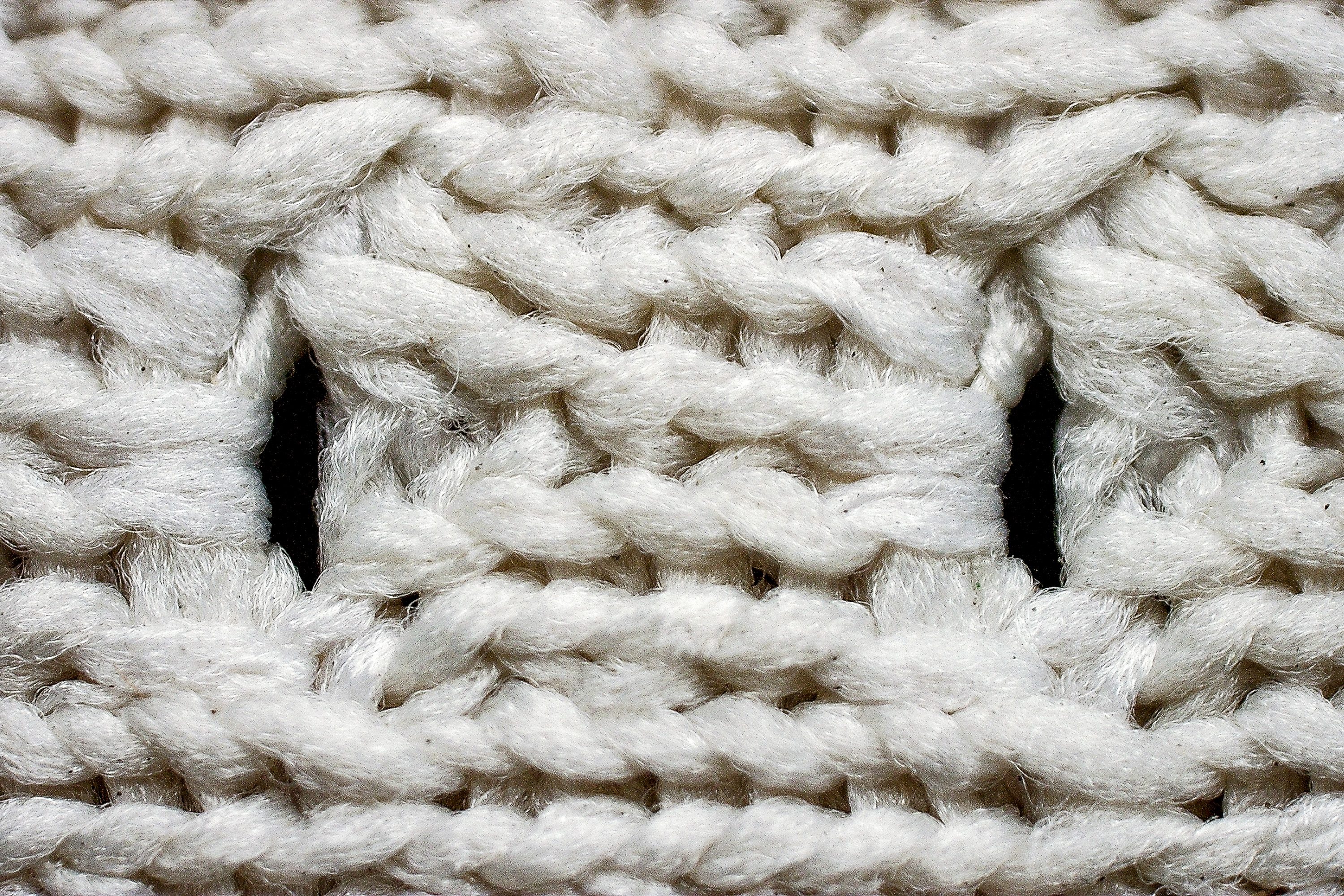
The upper doesn’t include much padding, but being a sock-like knit it doesn’t really need it.
Still, the heel has a super-thick foam insert to improve step-in comfort, which is not always present in this type of design.
| Cloudswift 4 | 4 |
| Average | 3.7 |
Stability
Lateral stability test
This is one of those shoes that could almost be classified as a stability model. With strong reinforcements to manage lateral forces in the heel and midfoot, a wide heel, and super-firm foam, it offers a very secure ride and works well for mild to moderate stability needs.
Torsional rigidity
Even with a plate running through most of the shoe, torsional rigidity stays below average at 3/5 thanks to the multiple flex grooves of the midsole. This confirms that the Cloudswift 4 is also a suitable option for those who like using their shoes for daily wear.
| Cloudswift 4 | 3 |
| Average | 3.5 |
Heel counter stiffness
Like most one-piece knit uppers, the heel counter is highly pliable and offers a soft, comfortable feel. We rated it just 2 out of 5.
| Cloudswift 4 | 2 |
| Average | 2.9 |
Midsole width - forefoot
The midsole remains fairly contained in the forefoot, avoiding the trend of many daily trainers going extremely wide. Our measurement came to 114.9 mm, which feels very reasonable for this type of shoe.
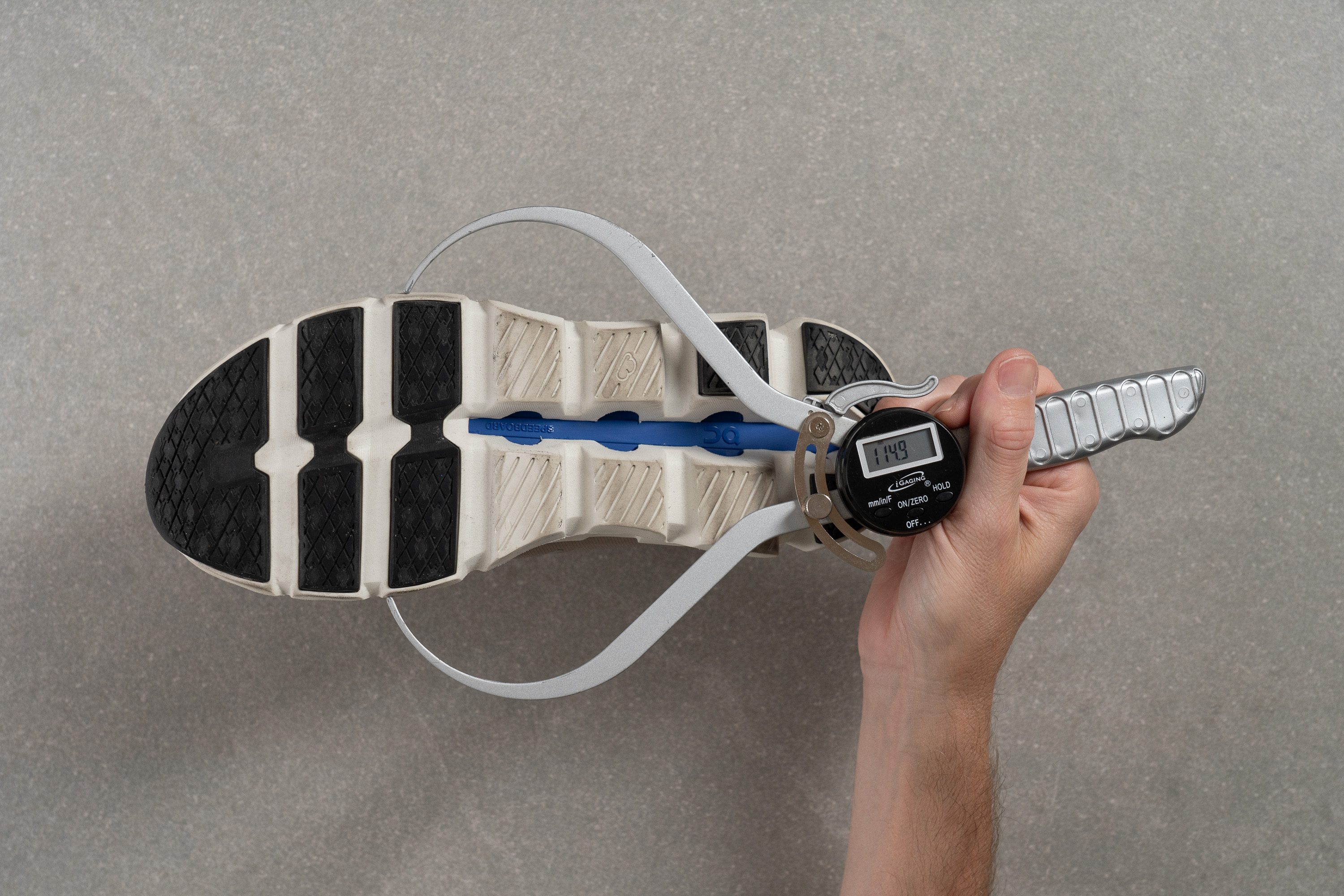
| Cloudswift 4 | 114.9 mm |
| Average | 114.4 mm |
Midsole width - heel
At 93.8 mm, we found that the rear is slightly wider than the forefoot, boosting stability and adding confidence for these runners.
Remember that, as we mentioned earlier in this review, the Cloudswift 4 is better suited for heel strikers—and this detail reinforces it.
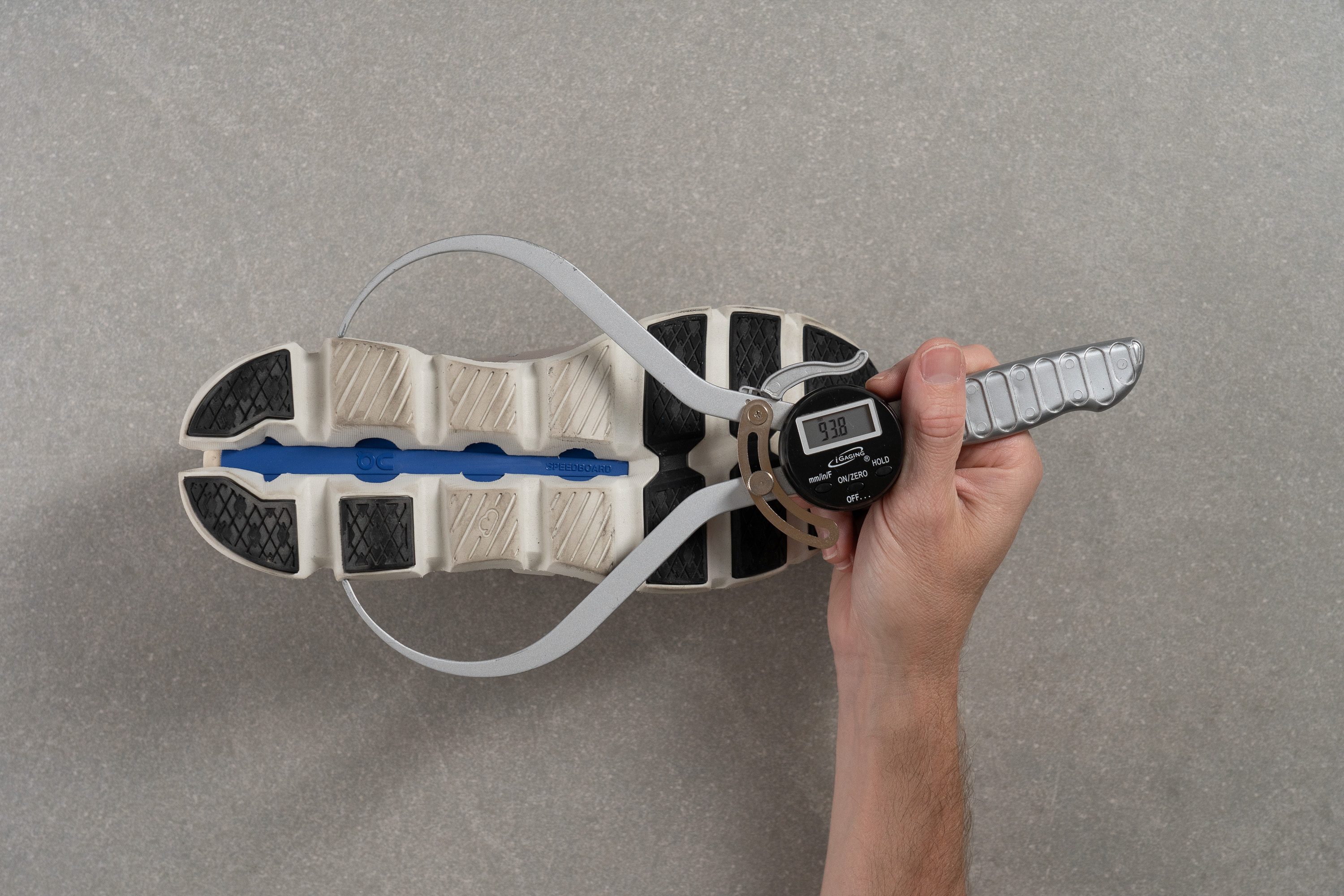
| Cloudswift 4 | 93.8 mm |
| Average | 90.6 mm |
Durability
Toebox durability
On markets this model as a one-shoe-for-everything trainer, designed to be worn before, during, and after a run. That demands strong durability since it will face more wear than a shoe made only for running.
We tested it with our Dremel and were satisfied with the outcome, especially for a knit upper that usually tears quickly. It scored 3/5.
| Cloudswift 4 | 3 |
| Average | 2.6 |
Heel padding durability
Even more encouraging, the heel padding held up even better, earning a strong 4/5 rating!
| Cloudswift 4 | 4 |
| Average | 3.4 |
Outsole durability
The outsole had us a bit concerned, since runners often track their mileage but forget the extra wear that comes from daily activities like gym sessions. That’s why seeing only 0.8 mm of damage was reassuring and a positive result!
| Cloudswift 4 | 0.8 mm |
| Average | 1.1 mm |
Outsole thickness
It’s good to see 3.5 mm of outsole, as this should translate into solid long-term durability for the Cloudswift 4. The tradeoff, of course, is that the extra rubber contributes to the shoe’s overall weight.
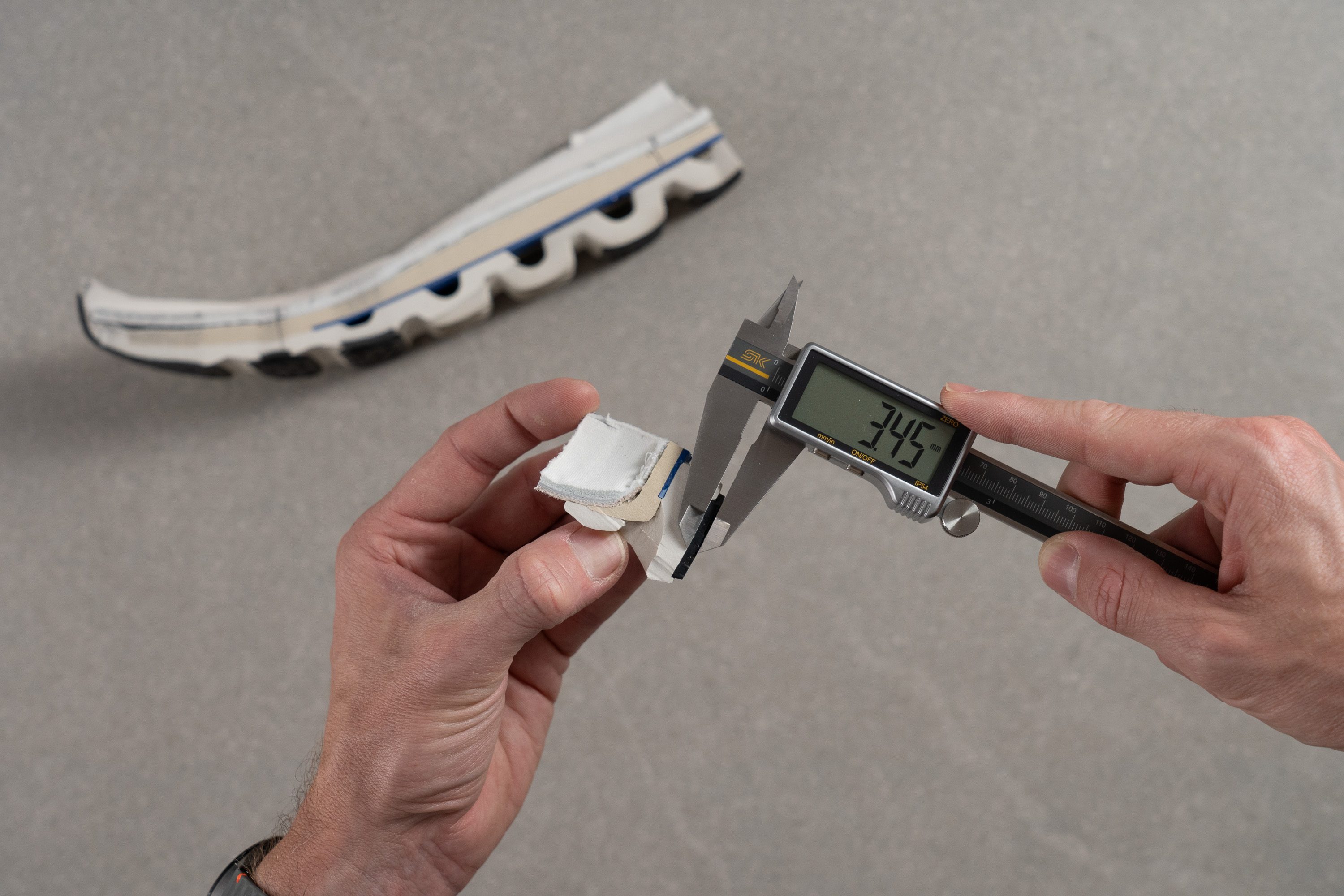
| Cloudswift 4 | 3.5 mm |
| Average | 3.2 mm |
Misc
Insole thickness
On equipped the Cloudswift 4 with a standard insole, measuring 4.2 mm in thickness.
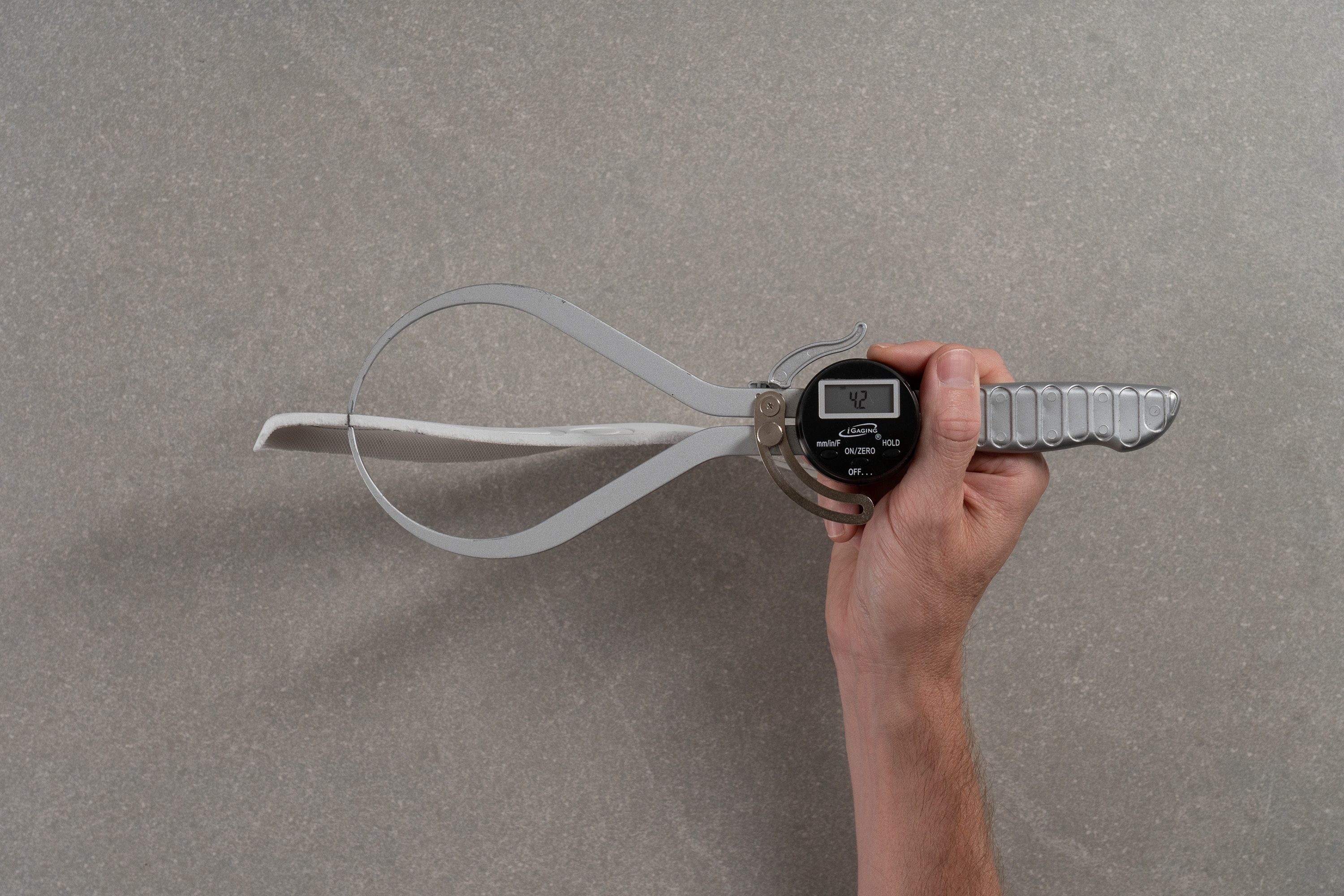
| Cloudswift 4 | 4.2 mm |
| Average | 4.5 mm |
Removable insole
The insole is removable, and while the included version flares slightly at the heel, you can easily swap it for a third-party option as long as the sizing aligns.
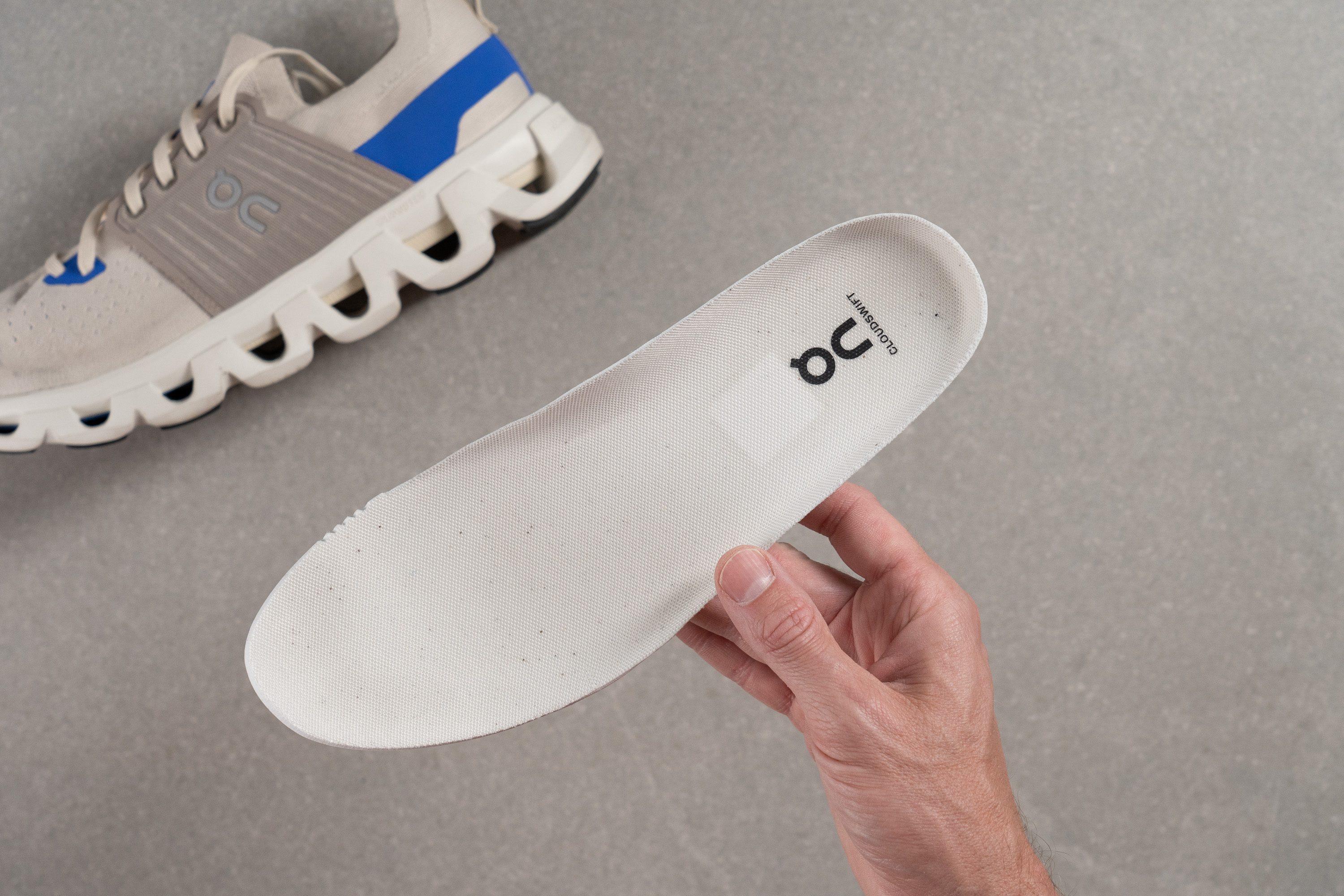
| Cloudswift 4 | Yes |
Midsole softness in cold (%)
The Cloudswift 4 relies entirely on an EVA midsole, so we were pleasantly surprised to record only a 25% change in our test. It's a performance that’s just average, yet better than the 30–40% shifts we usually see with EVA.
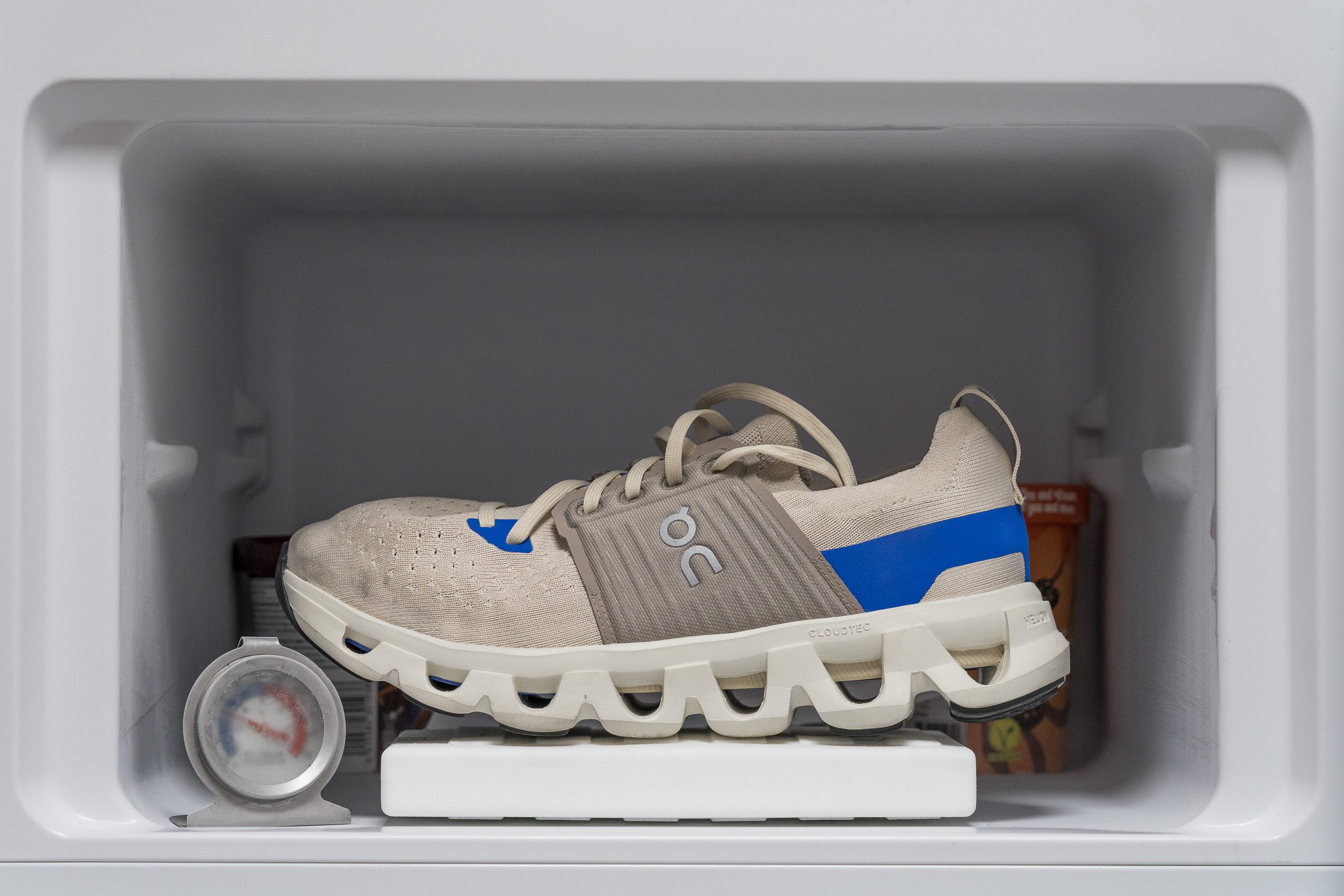
| Cloudswift 4 | 25% |
| Average | 24% |
Reflective elements
When we tested the reflective details, we discovered that On takes a different route: rather than skipping them or placing random patches, they merge them seamlessly into the logo, creating a sleek touch.
| Cloudswift 4 | Yes |
Tongue padding
The tongue carries minimal padding at just 1.6 mm, which was expected given the sock-like upper design, quite similar to models like the Adidas Ultraboost 5.
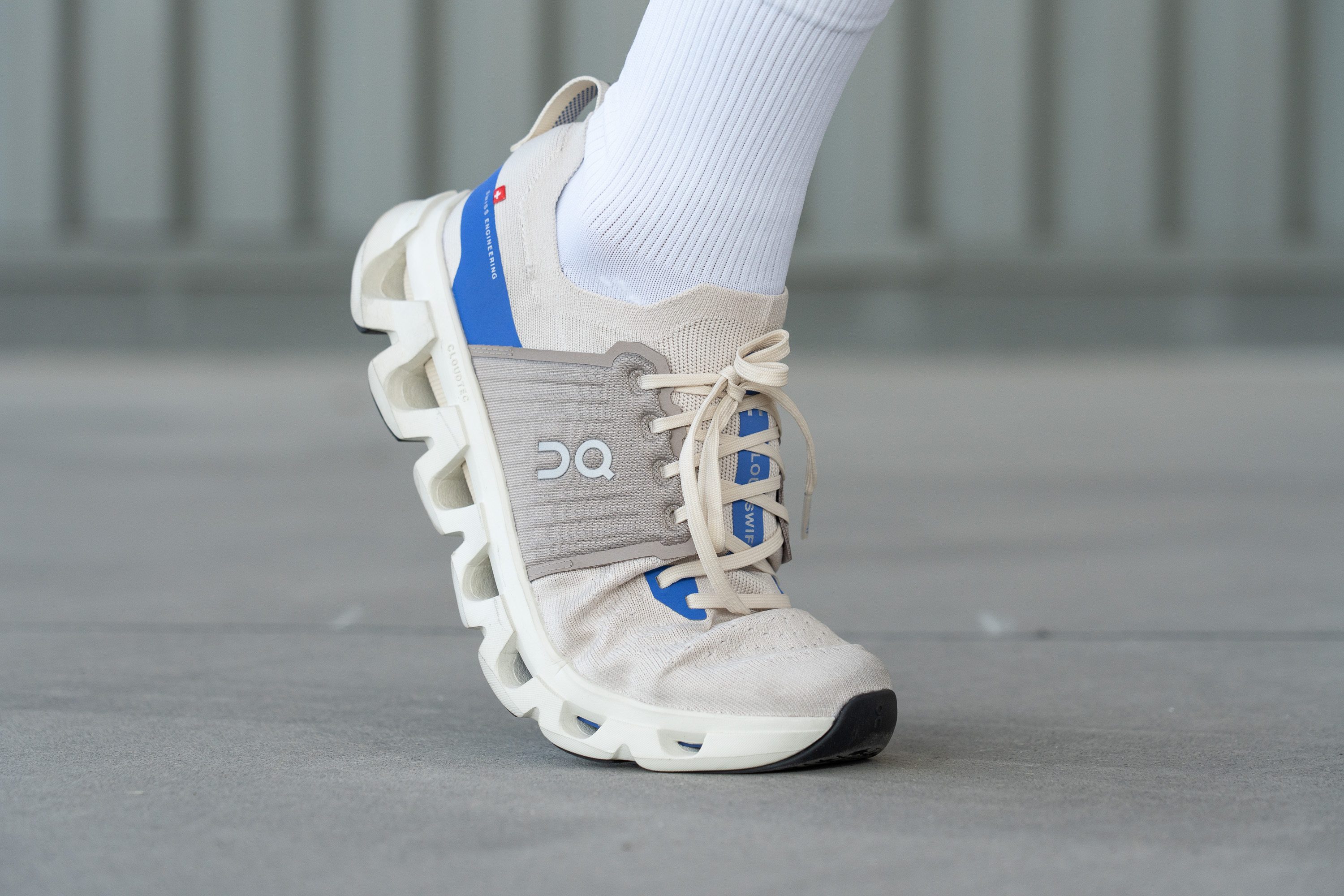
The lacing system also resembles the cage of the Ultraboost 1.0, lacking an extra eyelet—not needed in a sock-like upper—and doing a solid job of handling lateral forces, even if the look won’t please everyone.
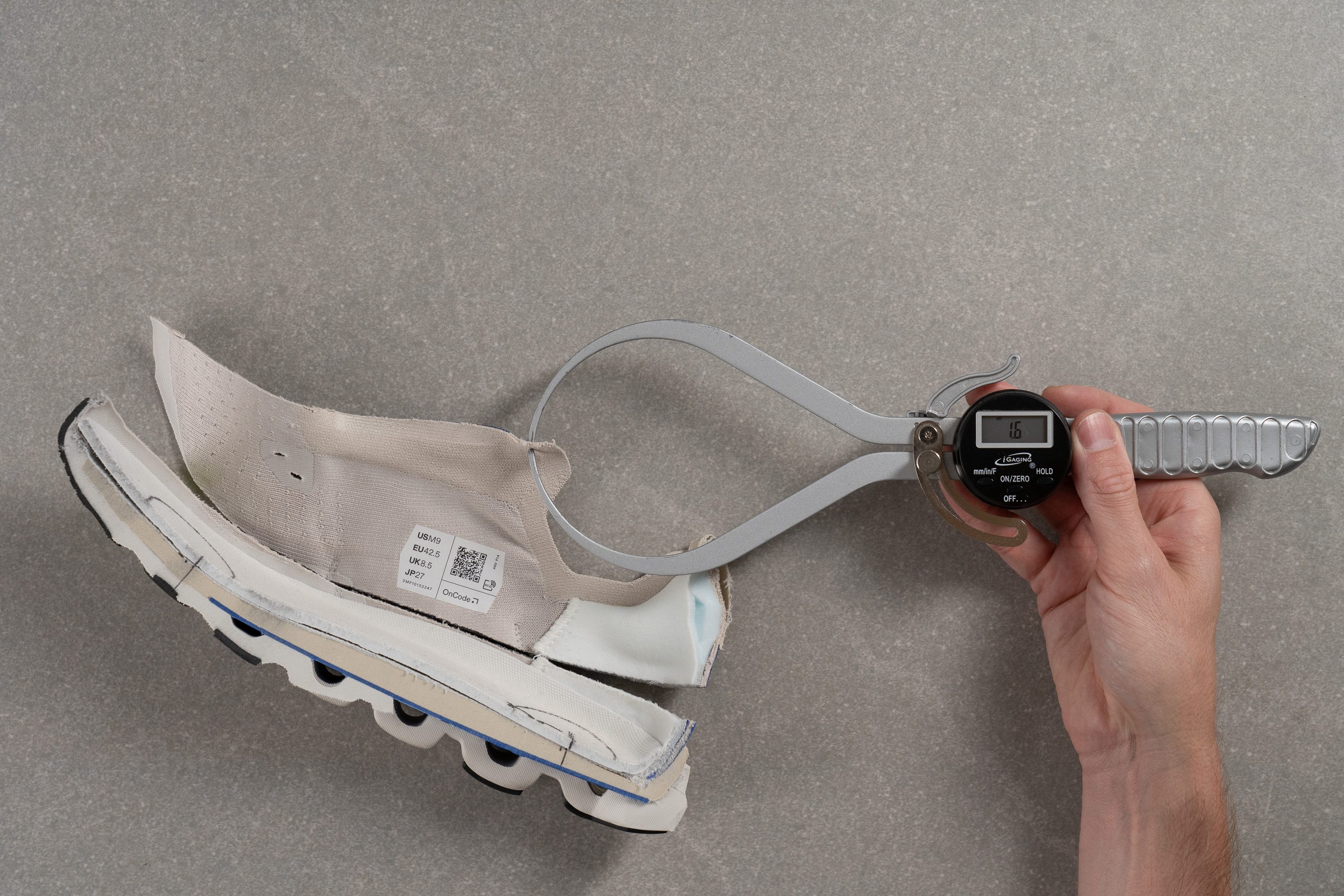
| Cloudswift 4 | 1.6 mm |
| Average | 5.7 mm |
Tongue: gusset type
The sock-like design of the upper keeps the tongue perfectly in place, eliminating any chance of it sliding sideways. However, this style isn’t for everyone, as it doesn’t suit all foot shapes. For those who enjoy it, though, the fit feels amazing.
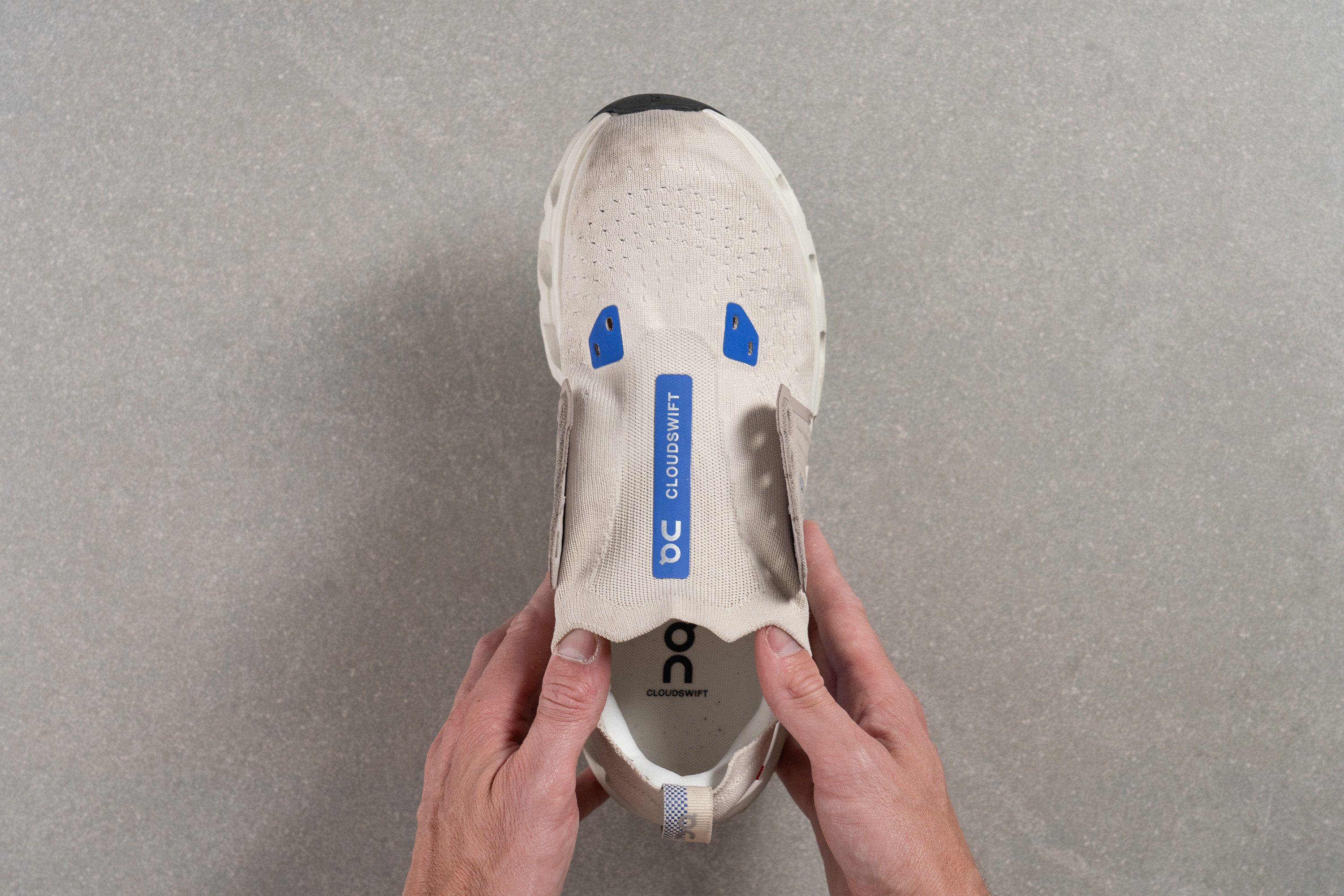
| Cloudswift 4 | Sock like |
Heel tab
On has added a finger-loop heel tab that’s stitched directly into the inside of the heel, offering a different look and compared to the external pull tabs seen on most shoes.
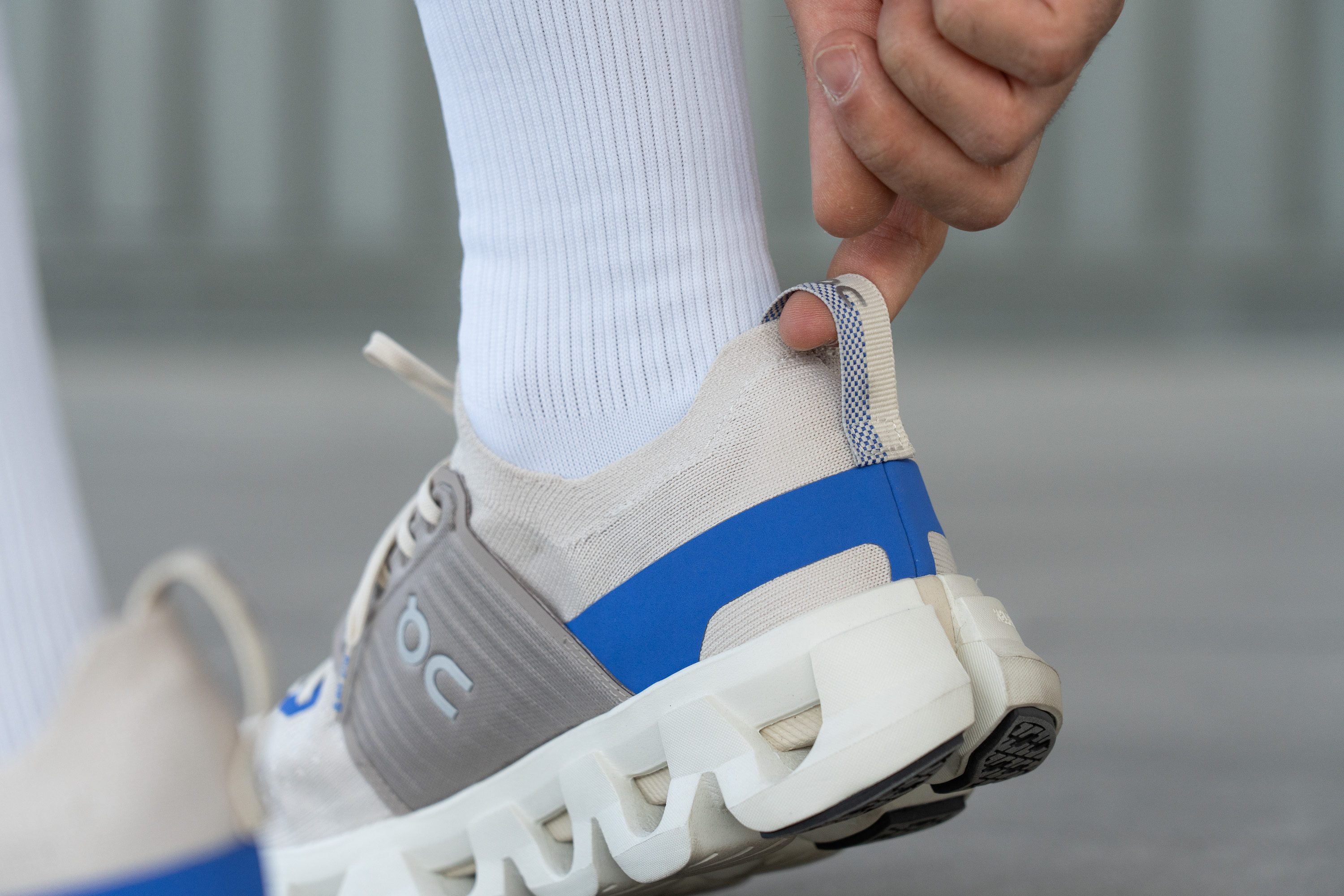
| Cloudswift 4 | Finger loop |
Price
It’s impossible to justify the Cloudswift 4’s price purely on performance, but that’s common with most On shoes. You’re mainly paying a premium for distinctive design and upgraded materials, and whether it’s worth it depends on your brand preference.
| Cloudswift 4 | $170 |

